#or even something that rebels against the established religion considering all these other titles have to do with light in some way
Explore tagged Tumblr posts
Text
Ok the more I think about it, the more I wonder if it isn’t so much a job title as it is his title. Like, maybe there was no previous Shadowhand and it’s just him, Shadowhand Essek Thelyss.
He’s a noble member of the Queen’s court, part of one of the three most powerful dens in the Dynasty. So maybe when he got old enough or proved himself to be someone worthy of being in court, they chose a title for him or he chose it himself.
If you think about the Dynasty, it’s the same people in the same titles century after century. It seems fair to say there’s only been one Bright Queen, that just is Leylas Kryn because there’s no passing of her title to anyone. Some of the other titles we know are Sunbreaker and Skysybil which easily sound like they could be highly specific to Olomon and Abrianna Mirimm, like made specifically for them.
The only titles we’ve really seen repeat are Taskhand and I guess Umavi — but I don’t think we necessarily know if anyone goes around saying Umavi Deirta like it’s her title. The newest one we know about is Starguide Uraya, whiiiich idk sounds like it could be Uraya is the only Starguide or there’s multiple Starguides it’s hard to tell
Anyway I guess my point is maybe “Shadowhand” isn’t meant to symbolize any sort of job description but rather that Essek is an important noble who was granted the respect of his own unique title
For all that ep 124 illuminated us on where Essek’s head is at, it only served to make it the answer to what the heck a Shadowhand does more confusing
Like, he was able to just ask “hey send me somewhere far away!” and someone (the Bright Queen?) was like sure, you like magic right? go be in charge of this magical artifact collection outpost
And Essek was like sweet I don’t know much about Aeor but here I go. Assassins can’t find me now!
Okay??? Does your title mean anything other than “shady dude who has some political power but not that much political power”????
#which just makes me think about essek at 100 thinking about ‘what’s my title gonna be’ and choosing something totally goth lmao#or even something that rebels against the established religion considering all these other titles have to do with light in some way#but really#i need answers matt!!!!#critical role#essek
278 notes
·
View notes
Text
Why do people become Pagan? The top ten reasons

by Michelle Gruben
“Why are you Pagan?” If you were to ask this question of a dozen people, you would probably get a dozen different answers. For Christians (and others who believe in one true God) the revival of polytheism may be confounding. For others, it is hard to understand why a sensible modern person would seem to turn their back on science to worship the gods of old.
Before we get too far along, let's cover some background info. Paganism is defined broadly as non-Abrahamic religion that is Nature-based, polytheistic, or both. Wiccans, for instance, generally worship a creator Goddess and a God who is Her consort. The Wiccan cosmology does not acknowledge the existence of the Christian God (or the concepts of Satan and Hell).
Wicca is the best-known of modern Pagan religions, but there are many sub-groups and branches of Pagan belief and practice. Druidism, neo-Shamanism, Greek/Roman reconstructionism, and Norse Heathenry are just a few. There are also eclectic Pagans who combine elements from various traditions to make their own “flavor” of Paganism. While occult practices (e.g., divination and spellcasting) are common in Paganism, not all Pagans participate in these practices. Conversely, not everyone who is involved in the occult is a Pagan.
Most Pagans are polytheist, meaning they recognize the existence of more than one God. But there is more to Paganism than “the more, the merrier!” Here are some general traits of Pagan religions (keep in mind that not every religion will have them all): Rejection of Judeo-Christian cosmology, observance of seasonal rites, reverence toward Nature, rejection of religious authority and focus on individual experiences, paranormal/psychic beliefs and practices, emphasis on personal responsibility over sin or evil.
Not surprisingly, a preference for one or more of these traits is what attracts many people to Pagan religions—but we’ll get to that in a moment.
At the risk of stating the obvious, religion is a choice. If a person follows a Pagan religion, they are expressing a preference for Paganism over another religion, or no religion. Thinking about the reasons why people choose to become Pagan can lead to better understanding of Pagan friends and family. If you are Pagan, you may even learn something about yourself!
For the record, I’m Pagan in a mixed-religion household. This (totally unscientific) list is based on my own observations within the Pagan community. I’ve tried to present them in a way that’s inclusive and fair. Without further ado, here are some of the most common reasons why people choose to follow a Pagan religion:
1. They were raised Pagan.

Contemporary Pagan groups began forming in the 1930s, and achieved breakthrough status with the emergence of Wicca in the 1950s. Before that time, very few people in the West were raised Pagan. If you wanted to be initiated in a Pagan tradition, you had to seek one out—often at great expense to your personal or professional reputation.
Nowadays, that’s not the case. Neo-Paganism as a social/demographic phenomenon is in its third generation. It’s fairly common to find adults who were raised Pagan, or even whose parents were raised Pagan! It’s also possible to find those who were raised Pagan, but left Paganism. “Mom used to go out in the woods with her friends and do weird stuff—I never really got into it.”)
Some Pagan clergy will participate in the general blessing of infants and children, such as the ritual of “Wiccaning.” However, most Pagan paths do not have formal initiation for children. Pagans also overwhelmingly value religious choice. If someone continues their Pagan practice into adulthood, it is likely because they found something meaningful in it.
2. They want sexual acceptance and/or sexual freedom.

Of all the world religions, Paganism is arguably the most tolerant of the varied expression of human sexuality. Sex is considered a divine gift and a sacred rite. Lusty Gods and fertile Goddesses appear in all the major pantheons. (Along with gender-bending, raunchy stories, and other sexy fun.) For most Pagans, sex is just no big deal as long as it’s between consenting adults (or deities).
Pagan groups almost universally accept gay members, and some traditions even have queer or queer-leaning branches (Radical Faeries, Dianic Wicca). Pagan activists have been on the forefront of the struggle for equal rights. Compare that to the sluggish response of churches—even liberal churches—to embrace LGBTQ members and clergy, and you’ll understand why sexual minorities have been so attracted to Paganism. For people who are used to hearing their sexual desires called dirty, sinful, or shameful, the difference can be life-changing.
It’s not just queer folks who embrace Paganism as a safe haven. Horny folks do, too. In most Pagan belief systems, sex is not considered a sin but a morally neutral act. Sex for fun is fun, sex for magick is magick. It’s not how much sex you’re having, but your intention that characterizes the act. The only moral imperative is in how you’re treating yourself and your partners.
Partners? Oh, yes! Polyamory, group sex, and (legal) exhibitionism are accepted within some Pagan communities. That’s an undeniable treat for people who want to enjoy these activities without religious shame.
3. They don’t care for dogma and/or authority.
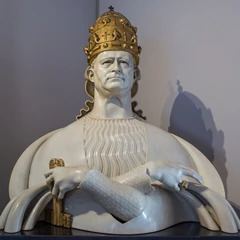
There is no holy book, no central governing body, and no real priestly authority within the mass of related beliefs filed under Paganism. This is great news for people of a certain temperament—religious rebels and militant agnostics. (“I don’t know, and you don’t either!”)
As a social movement, neo-Paganism is deeply indebted to the Transcendentalist writers of the 19th century. Their poems and essays held the germ of the idea that fuels Pagan practice: That God speaks directly to everyone—often through Nature—and not only to a specially qualified few, inside special buildings.
Some Pagan groups do have ordained clergy. But there are still significant differences between Pagan clergy and those of more established organized religions:
First, Pagan titles like “High Priestess” are usually self-conferred or passed along from student to teacher. This does not mean that they’re not “real” clergy, but it does mean that their power is limited outside their own group or coven. (A Pagan leader may also be ordained as a minister by another organization, such as the Church of All Worlds or the Unitarian Universalist church. This allows them to receive certain legal privileges that independent Pagan clergy usually do not enjoy.)
Secondly, Pagan clergy tend to function more as community leaders than authority figures. Pagan priesthood does not confer any real power over others, either temporal or spiritual. Most Pagan leaders encourage discussion and self-study by their students and congregants. Certainly a dedicated Priest or Priestess will have more experience working with their deities than a beginner. They may have the skills to do rituals or advanced deity work that a novice does not. In a sense, though, every Pagan is their own Priest or Priestess—and the best Pagan clergy respect that. This makes Paganism very attractive to those who don’t want to experience God(s) secondhand.
4. They long for a connection to Nature.

The earth, the trees, the sky, the sea—most world religions recognize these wonders as the work of a mighty creator God. And yet, most leave it at that.
Not so with Paganism. Pagan religions are sometimes described as “Earth-based”—meaning the Earth and its cycles are central to what Pagans hold sacred. Most Pagans profess a deep reverence for natural places, the seasons, the web of plants and animals, and the processes of birth, aging, and dying. While it’s not technically required, many Pagan services are held outdoors. “Skyclad” (nude) rites are another way that Pagans shed the trappings of modern society and get back to the core of being.
Some people come to Paganism as an extension of their environmentalist or eco-feminist views. Others simply want to reconnect with Nature as an antidote to the alienation that comes with busy, digitized lives.
5. They’ve had negative experiences with other religions.

It’s a sad but undeniable fact. People who turn toward one religion are often, with the same movement, turning away from a religion that has hurt them. If you spend enough time in Pagan communities, you will certainly meet some of these displaced folks.
Perhaps a certain religious doctrine—such as the prohibition against homosexuality—is causing the person emotional pain. Maybe they’re frustrated with persecution, corruption, or hypocrisy within the religious group they came from. Or maybe they’re rebelling against the religious beliefs of a parent or spouse. Whatever the case, Paganism appears to offer a chance for a fresh start, one with less restriction and oversight than they may be used to. Pagans don’t evangelize—which may make them seem more trustworthy to folks who have been burned.
As with all life choices, there are right and wrong reasons to become a Pagan. And you can’t ever really know someone else’s motives. The best thing that Pagans can do is treat religious refugees kindly, answer their questions honestly, and wait for them to figure out if Paganism is right for them.
6. They have trouble with the concepts of sin and evil.

Of all the barriers between Pagan beliefs and Abrahamic religion, the idea of sin is the thorniest. Original sin is a tough doctrine to swallow, even for many Christians. Who wants to suffer for something that happened before they were born? That Paganism has no equivalent concept to sin and sinfulness is one of its biggest selling points, so to speak. (Pagan beliefs about the origin/existence of evil are so diverse I won’t even try to tackle the topic here.)
As mentioned earlier, there’s no single Pagan concept of God. Still, one idea you see over and over in Paganism is the doctrine of non-dual immanence. God/Goddess existing here and now, and not in some distant place or kingdom to come. Lack of meditation or participation or acceptance can distance us from the sacred, but God/Goddess is always there. Furthermore, divinity is present within the material world, and the world is inseparable from its creator.
All of this is pretty difficult to reconcile with Judeo-Christian ideas about original sin and the fall of man. (Some Hermetic Pagans do accept them as metaphorical/alchemical truths—but that’s a whole other beaker of worms.) In Biblical cosmology, the world is created by God, but separate from God. The world we know is basically fallen and can only be redeemed through God’s intervention. In Paganism, the world we know is basically holy and does not require redemption. (Only observation and celebration, if we want to be happy and—perhaps—please the Gods.) The other worlds are holy, too—not more, nor less.
As for behavior? Paganism emphasizes individual freedom and responsibility over moral absolutism. Most Pagans live by an individual moral/ethical code, but shun universal behavioral codes. Pagan ethics have been heavily influenced by the Wiccan Rede: “An it harm none, do what ye will.” This in turn derives from Aleister Crowley’s “Do what thou wilt shall be the whole of the Law”—possibly the most mis-interpreted eleven words of all time.
It’s not that Pagans believe that you can or should do whatever you want. On the contrary, Paganism teaches that actions (and even thoughts) reverberate through the universe to affect oneself and others. There’s no real concept of sin, but Paganism is not amoral. In encouraging moral behavior, Paganism substitutes concepts like karma, duty, interconnectedness, for a paternal god figure keeping score.
7. They yearn for representations of the Divine Feminine.

Dion Fortune wrote “A religion without a Goddess is halfway to atheism.” Women’s bodies are the carriers of life. And yet, many world religions downplay or denigrate the contribution of women. In Abrahamic religions, women can be vessels and saints, but are rarely prophets and never God. Many people yearn for distant time—real or imagined—when women’s bodies could also be a representation of deity.
As a social phenomenon, the rise of Wicca and Goddess spirituality has coincided pretty neatly with the expansion of women’s rights. As long as women are to be regarded as equal to men in society, there are those who feel that patriarchal religions can never be wholly legitimate.
Everyone has an earthly mother and a father. If you believe in God, it makes a kind of intuitive sense that everyone has a divine Mother and Father, too. Yet religions that include a Goddess are usually labeled polytheist and Pagan automatically.
8. They want explanations for psychic and paranormal events.
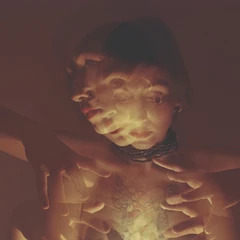
Out-of-body experiences, premonitions, telepathy, ghost encounters—weird stuff sometimes happens. If you haven’t had an inexplicable experience, then you likely know someone who has. Pagans aren’t alone in experiencing the paranormal, of course. But they tend to be better equipped to talk about it than the average person.
Imagine a person who has recurring paranormal experiences, or experiences they believe to be paranormal. Mainstream science tells them that these experiences are illusory. Mainstream religion—when it’s not condemning them as evil—seems mostly too embarrassed to talk about occult happenings. It’s no surprise that the person would be drawn to a Pagan community where psychic stuff is openly discussed, accepted, and even encouraged.
Don’t get me wrong—mental illness and paranormal delusions do occur, and can cause great harm. But the not-crazy among us still yearn for a safe haven to discuss our psychic lives without condemnation. I believe—though I can’t prove—that so-called paranormal experiences are actually quite common among the general population. I’ve also observed that persistent psychic curiosity is one of the major reasons that people turn to Paganism.
9. They’re attracted to the power and control offered by magick.

I once read an academic paper that was trying to explain the rise of Wicca and witchcraft among teenage girls. The conclusion was that when a young women lacks a sense of control in her life—i.e., economic, sexual, or social autonomy—a religion that offers a secret source of power is immensely attractive. (Who wouldn’t want to be able to cast a love spell on a crush, or curse a bully?) The author observed that many teen girls become practicing Pagans in junior high and high school. They tend to lose interest after finding another source of personal power (a job, a relationship, a better group of friends).
As a young Pagan woman, I found the tone of this particular paper to be condescending, bordering on insulting. But one thing is obviously true: Occultism purports to offer power to the powerless, esoteric means to an end when exoteric means have come up short. Why else would there be so many people interested in fast answers—love spells, get-rich-quick spells, and the like?
Lots of people approach witchcraft and/or Paganism because they want to learn to use magick. They see it as a way to fix their lives in a hurry or achieve undeserved success. Many of them move along when they realize that real magick is real work.
10. They’ve been called by a God or Goddess.
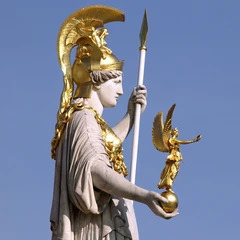
A burning bush, a deathbed vision of Christ, a miracle from the Virgin Mary—these are the types of religious experiences that are familiar to most people. But Pagans have religious epiphanies, too. Although most of us don’t talk about it outside of trusted circles, our Gods and Goddesses call to us in dramatic and in subtle ways.
Like any other type of religious conversion, some people drift gradually toward an acceptance of Paganism, while others are thrust toward it by a single epiphany. Some people may scoff at the idea of elder Gods asserting their presence in the 21st century. But it's certainly no wackier than what other religious people believe. (And it's hard to be so cavalier when Odin’s keeping you awake at night with a to-do list.)
For most Pagans, one or more of the above reasons has contributed to their finding their religious path. There are certainly other reasons that aren’t on this list. Of course, the best way to find out why a particular person is Pagan is to (respectfully) ask!
https://www.groveandgrotto.com/blogs/articles/why-do-people-become-pagan-top-ten-reasons
14 notes
·
View notes
Text
Solas and the Original Elvhen Gods
For about five years I've been sitting on my theory regarding Solas's origins and the true Elvhen gods, and the new BTS trailer has me just revved up enough to post this. (Buckle up, this is gonna get long...)
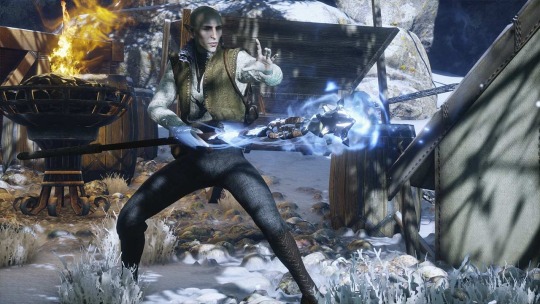
Since Solas's first concept art was released back in 2014 I couldn't shake the impression that his design strongly resembled a monk/priest of some kind.
Let's attribute this assumption to 50% my loving ALTA and another 50% because I spent a ridiculous amount of time watching The Mummy movies in my youth. And not for Brendan Fraiser, oh no.
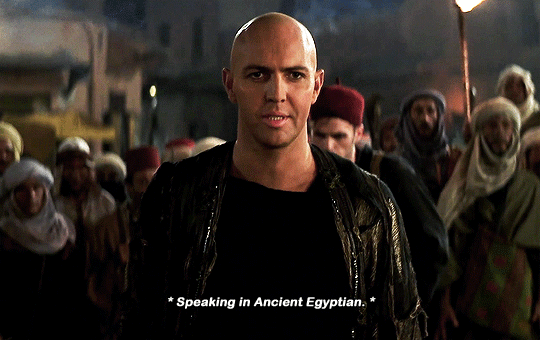
Ahem... anyway.
Aside from his very bald, bald head, Solas tends to wear robes and other more ceremonial looking garments. You could attribute that to him being a "god", but I think Solas himself would probably dislike the comparison. Before the DAI came out, we also got some shots of the companions on the armor inventory screens - including some of Solas in his all white base armor.
The Ancient Dreamers
At the time, this was a super exciting detail. I could count on one hand the amount of information we had on the ancient elves, but it was made pretty clear back in DAO that dreamers who achieved perfect Uthenera were clothed in all white. Once my theory of Solas being an ancient elvhen dreamer turned out to be true, I nearly forgot their cultural importance until long after Tresspasser came out. Mostly because I didnt realize so many people believed the rest of the Evanuris were dreamer mages as well.
So quick question, but do we have any evidence to assume that the Evanuris besides Solas were dreamers? Pre-inquisition codex entries made the dreamers seem a separate group of individuals - tasked with the protection of Arlathan specifically - and slain by the elvhen citizens once their magic failed to protect the city from Tevinter. If this lore hasn't been retconned or "misremembered" by the Dalish, Solas was part of an ancient order separate from his involvement with the Evanuris, which he would have felt deeply connected to because of the rarity of their shared magical ability (Marethari tells us dreamers have always been rare in DA2 when you assist with Feynriel).
Prior to Tresspasser, I assumed Fen'Harel was a lone wolf because he turned his back on his "pack", the other elvhen gods. But Solas paints a very different picture in his way of talking about the Evanuris throughout the game. In fact, he seems intent on not associating with them at all, even before their murder of Mythal or his open rebellion. I never get the impression that Solas was fond of the other Evanuris, or considered them enough of a family to warrant the "pack" analogy.
So who were the members of Solas's first "pack" that the Evanuris never lived up to? Probably the original bearers of the other foci. Wolves, up until the fall of the Dale's were seen as guardians and protectors in Elvhen myth (see the Emerald Knights). Perhaps they were also the sigil of the ancient dreamers of Arlathan, who were the city's protectors? That would certainly make more sense as to why wolf statues are everywhere in Thedas, despite Solas full tilt rejecting godhood. This is backed up by the murals in Vir Dirthara, full of wolves, individuals with bald heads, and foci. And they're fighting the titan.

But more on the Titan later.
I find it hard to believe that Solas personally had more surviving sculptures than all the rest of the Evanuris, particularly after he rebelled against them. It would make more sense to me if the wolves represented something greater than Solas individually. Particularly since he's titled, very specifically, The DREAD Wolf, as if there are other wolves that are not.
The Dreamers and Foci
In his first moment of really opening up, Solas tells the Inquisitor that the foci were used to channel power from "our" gods, which is the first time we hear him sounding so connected to Elvhen religion in 20 hours of gameplay. Solas never refers to the Evanuris as gods in a serious tone, so on replay this dialogue caught my attention. Why would a god need to channel power from himself? Do we ever get any hint of a foci belonging to another member of the Evanuris? Checking back on this topic throughout my playthrough, I can't find any instance of the foci being tied to the Evanuris. However Dorian is happy to tell us about the association between the orbs of Tevinter and the Ancient Dreamers. And Solas having one certainly lends credibility to his statement. My next thought became "so what if there were gods that predated the Evanuris, who were powerful spirits worshipped by the Ancient Dreamers using foci?." This assumption certainly makes sense given everything we know after JoH, since it uses the same structure of the Avvar religion (which Solas feels is highly enlightened for their time). It also provides a stronger story link for why we got that DLC in the first place, and hints what may have happened to these god spirits to facilitate the rise of the Evanuris.
The Original Gods
Surely we would have some hints as to who these dieties were this far into the games though, right? Oh wait, we do. My brain hurts to realize the writers even call them THE OLD GODS to make it easy for us. ::headesk:: Combining the lore of the old gods with the myths from the Astrariums and the archetypes of the Evanuris who supplanted them, we could try to guess their original forms. So let's line up the potential original pantheon:
Dumat/Silentir: The God of Justice, the Dragon of Silence. Supplanted by Mythal.
Zazikel/Kios: The God of Freedom, the Dragon of Chaos. Supplanted by Elgar'nan.
Toth/Ignifir: The God of Love, the Dragon of Fire. Supplanted by Sylaise.
Andoral/Servani: The God of Unity, The Dragon of Chains/Slaves. Supplanted by Andruil.
Urthemiel/Bellitanus: The God of the Artistry/Craft, the Dragon of Beauty. Supplanted by June.
Razikale/Eluvia: The God of Wisdom, the Dragon of Mystery. Supplanted by Dirthamen.
Lusacan/Tenebrium: (Owl) The God of Purpose, the Dragon of Night. Supplanted by Falon'Din (Lethanavir)
This makes so much sense when you consider Solas's hatred for the Grey Wardens, who have been systematically destroying the souls of the old gods once they're corrupted into archdemons. But how on earth did ancient elvhen god spirits get bound to dragons and trapped underground anyway?
The Fate of Gods and Dreamers
Back to Vir Dirthara and the Titan murals. We know the foci were used to seal away the blight in some way, because Solas told us (the angry red eyes are always the blight in his murals):
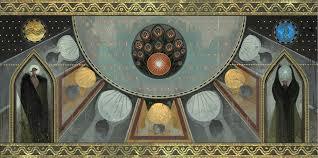
The rest of this will be pretty tin foil, but I think this mural helps illustrate my assumptions of the dreamers' involvement with the Evanuris.
The (bald) dreamers of Solas's order assisted Mythal in defeating the titan.
Sometime afterward, the "dead" titan returned in the form of red lyrium and threatened all of Elvhenan. This assumption is supported by the last codex entry in Tresspasser" where the Elves attempt to "seal away" a danger in the deep roads.
However they accomplished this, part of it required the dreamers to use the old gods power by binding their spirits to the forms of high dragons (just like JoH). These old god dragons are keeping the Blighted Titan "sleeping" which is why darkspawn seek to corrupt them (to free the source).
I believe the sinners judgement from the temple of Mythal also indicates that the dreamers themselves were the high dragons (taking the form of the divine), and why their foci were passed on to the Evanuris after the binding. The Evanuris were then able to use the power of the foci, as well as the vacuum left by the dreamers' absence, to establish themselves as the "new" gods.
So... thoughts?
41 notes
·
View notes
Text
SPN AU Bingo
Title: The Caged Hunter (working title)
Square Filled: MentalHospital! AU
Ship: Unrelated/Wincest
Rating: this chapter is rated t, but if I decide to pursue the rest of the story it will go up to M
Tags: Mental Hospital AU, Mental Patient!Dean, Psychiatrist!Sam, semi-slow burn, slow descent into obsession,
Word Count: 1408
Summary: The working summary is after 13 years on what has been deemed a religion spurred murder spree, Dean Winchester aka The Hunter has been caught by local authorities and sentenced to forty years in a psychiatric facility with one Sam Wesson as his doctor. As Sam tries to figure out how and why Dean was finally caught he finds himself starting to fight feelings he shouldn’t have.
Written for @spnaubingo
The Hunter: Caged
“What’s this?”
Sam dropped the file in his hand onto the desk. It was stuck out like a sore thumb on the dark wood of his boss’s desk.
“It is a new patient,” the older man answered. “I thought you might be interested.”
“I’ve already got my hands full with the other fifteen patients, and three group therapy’s a day you give me,” Sam told him. “I’ve my hands full Zachariah. You can not just spring a new patient on me like that.”
“Did you even look at the file Samuel?” Zachariah asked.
“It’s Sam,” he corrected. But he picked up the file and opened it to the first page. He leaned against the armrest of one of the leather chairs in front of his desk. He scanned the mugshot presented to him.
The Hunter aka Dean Winchester.
“He was caught?” Sam asked.
“Caught, confessed, interrogated, tried and convicted to forty years in our lovely establishment,” the man spread his arms wide with a half smirk half smile combination. “Consider this, an early birthday presents of sorts.”
Sam snorted a little. “My birthday isn’t until May.”
“If you’re really that overwhelmed with patients, I’m sure I could pass it off to…” Zachariah tapped his fingers together in thought, “Masters? I’m sure she’d be interested.”
“No, that won’t be necessary,” Sam closed the file.
“Excellent. I’ve your first appointment scheduled for this afternoon, afterward, you can set a time that works for you,” Zechariah told him. “You’re welcome, Sam.”
Sam tried not to roll his eyes and walked out of the office and back to his own. He sat back his desk and opened the folder for a second time.
“Why on earth would you let yourself get caught?” Sam thought out loud. “Thirteen years, and not one slip up until now.” He unclipped the mugshot photo and held it up as he leaned back in his chair. “What goes on in your head Dean Winchester?”
Sam stood up from his chair as one of the orderlies led Dean Winchester into his office. He looked...small in person. Pale skin, dirty blond hair, bright green eyes. They were unfocused as they looked at Sam’s and he gave him a lopsided smile.
“What’s up doc,” he greeted.
“That’ll be all,” Sam told the orderly.
“Sir I don’t-”
“With the amount of drugs pumped into his system, I highly doubt he’d be able to stab me with a pen,” Sam interrupted gently. Not that he would. Not his nature.
The orderly looked reluctant but left the room and shut the door with a soft click. Dean remained standing. He swayed on his feet and as he looked around the room. His eyes returned to Sam multiple times in the span of five minutes.
“Are you thirsty Dean?” Sam asked. “Do you want something to drink?”
“I ain’t that easy tiger,” Dean flashed him a lazy smile. “But I’ll take a coke if you’re offering.”
“Coke,” Sam let out a small chuckle as he walked over to the minif ridge behind his desk and grabbed two cokes. He set one both can’s on the coffee table between them. “You can have a seat you know. The couch won’t bite.”
Dean sat down and crossed his legs under him. Sam sat in his chair, crossed one leg over the other, and balanced his notebook in his lap. He watched Dean reach forward, and open both cans. He nudged the second towards Sam.
“You didn’t have to open that for me,” Sam told him.
Dean shrugged. “I wanted too…” he picked up his own can and took a sip. He exhaled slowly and burped and grinned a little. “That’s how you know it’s crisp.”
“Really? I Never knew that,” Sam said.
Dean set the can back on the table. “So you’re a head doctor?”
“Psychiatrist, but yes,” Sam answered. “And you are The Hunter.”
Dean smiled. “You heard of me?”
“Ever since Blackwater Ridge. Impersonated a wildlife and preservation Agent, group of dead campers, body found in an abandoned underground mine,” Sam crossed his arms over his chest. “Charred to a crisp.”
“How old were you?” Dean titled his head to the side.
“Pardon?” Sam tried not to look confused.
“How old were you? When you became my fan?” Dean smiled.
“I...22…” Sam answered. “I was 22.”
“You were 22,” Dean repeated. “Bet you were cute at 22 right? Baby faced maybe? Dimples. I bet you’ve got dimples. And those bodies. Wasn’t me.”
“It wasn’t?” Sam asked.
“Nope,” Dean answered. He popped the P and leaned back on the couch. “It was a Wendigo.”
“A wendigo?” Sam repeated. “What is a wendigo?”
“They feed on human flesh. Nasty things, only fire will kill them,” Dean answered. “My dad sent me there to kill it. That’s what we do. My dad and I. We hunt monsters...well...we used to hunt monsters.”
“Monsters? Plural?” Sam uncrossed his arms and leaned forward a little. “What kind of monsters Dean?”
Dean nodded and Sam watched his eyes brighten. “Monsters...wendigo’s, demons, angels, witches, witches are the worst, they like to spew their bodily fluids every. It’s disgusting-”
“Angels?” Sam interrupted. “I didn’t realize angels are monsters.”
“Not all of them,” Dean replied. “My friend Castiel, he’s one of the good guys you know? Well, he tries to be, but really they’re all just dicks with wings.”
Sam couldn’t stop the laugh even if he wanted to. Dean blinked and suddenly leaned forward, knees braced on the coffee table as he poked Sam’s cheek.
“I knew it.” His breath smelled like Coca Cola. “Dimples.”
He was back on the couch just as quickly as he’d been in front of Sam. Legs tucked under him, soda can in his lap. Sam tapped his pen against the notebook.
“I’m not crazy you know,” Dean said. He was still smiling, but he sounded defeated. “The last head doctor. He told my lawyer to make me sound crazy...talk about my dad...make it sound like I’m a victim and that he brainwashed me. But he didn’t. We saved people Sammy.”
“I don’t think you’re crazy Dean,” Sam said after a moment.
“You don’t?” Dean’s smile widened and Sam shook his head.
“I think…” Sam stopped tapping his pen, “you hunt monsters.”
Dean nodded. “Yes.”
“Could you tell me about them?” Sam asked. “These angels and demons of yours. How do you tell when someone’s an angel? Or if they’re a demon?” Sam asked.
“Demons have black eyes,” Dean answered. “All black. And they’ll flinch if you say, Cristo. It’s Christ in Latin. Holy water works too.”
“Holy water?” Sam asked.
“Water that’s been blessed,” Dean answered. “Burns their skin. The pilot on that plane, he was a demon.”
“Was he?” Sam asked.
Dean nodded. “Couldn’t let him kill all those people. And, you know he didn’t die.”
“What about angels?” Sam asked.
“Angels are harder,” Dean answered. “I mean, they don’t really have any tells you know. But I’m mean they’re supposed to be nice guys you know. They can’t possess humans without their consent. Usually, people who pray to them.”
“Who is Castiel possessing?” Sam asked.
“Well, he’s not...possessing anyone anymore,” Dean answered. “See, the guy he was possessing was this wholesome family guy James Novak. Nice guy too. But he prays for something better and Castiel comes along...he’s not a real people person though. Rough around the edges, but he’s a nice guy once you get to know him.”
“What happened to James, Dean?” Sam asked.
Dean's lips twitched as he smiled. “James Dean is a cool guy. Rebel Without of Cause was a great film. Do you like movies?”
“I’d like to talk about your friend Castiel,” Sam answered.
“I don’t want to talk about him anymore...he pissed me off,” Dean crossed his arms over his chest.
“Why’d he piss you off?” Sam asked.
“I don’t want to talk about it,” Dean answered. “Can we stop talking about it?” He rubbed his arms and Sam watched the skin turn pink under the action.
“Alright. We can pick this up again tomorrow,” Sam nodded. He closed the notebook and set it aside.
“You didn’t drink your soda?” Dean frowned as he stood up.
“Wasn’t thirsty,” Sam answered.
“Oh…” Dean nodded a little.
“You can have it if you’d like,” Sam told him.
“No, that’s okay,” Dean smiled again. “You might get thirsty later.”
4 notes
·
View notes
Text
By Rany Jazayerli
The year was 1860, and the world was, as usual, in upheaval. In China, the Second Opium War was coming to an end. America was preparing itself for major surgery, in the form of the Civil War, that would finally cure the young nation of its congenital defect of slavery. And in the heart of the Middle East, in a province of the Turkish Ottoman Empire that would later become modern-day Syria, an unholy concoction was brewing. That’s right: politics was mixing with religion.
Christians and Muslims had lived side-by-side in the holy land for over a thousand years. Muslim armies had conquered modern-day Syria, Lebanon, Israel, and Egypt in the middle of the seventh century, and while the Muslims maintained full political authority, Christians and Jews were allowed to freely practice their religion. The notion that non-Muslims were forced to convert at the point of a sword is laughable – in Egypt, for instance, it is estimated that Muslims made up only half of the population in the year 1200 – five hundred years later.
The area around Lebanon and Syria, in particular, was as religiously diverse as anywhere in the world in the mid-19th century. In addition to substantial numbers of Muslims (both Sunni and Shiite), Christians (Roman Catholic, Greek Orthodox, Maronite, Chaldean, Syriac, and others), and Jews, there were also religious groups like the Alawi and Druze, who had splintered out of mainstream Islam centuries earlier and were now considered their own religions.
By the standards of that era, these groups lived in relative harmony. Which is to say, by the standards of that era, the fact that these groups co-existed at all was a miracle. If you were a religious minority anywhere in the world, your life was in peril. Just the year before, the very first pogrom in Russia took place in Odessa, claiming the lives of many Jews. Not even America was immune to this sort of religious violence; in 1838, 18 Mormon men were killed in the Haun’s Mill Massacre in Missouri.
The Druze and Maronite Christians were concentrated in Lebanon. The two groups had never liked each other, and their relationship was getting worse. It didn’t help that outside powers were encouraging both sides. The French supported the Christians, the British supported the Druze, and with the Ottoman Empire crumbling by the day, the Turkish rulers were unable or unwilling to end the conflict.
In 1858, Christian peasants in Lebanon mounted an uprising against their Druze feudal lords. The Druze retaliated. The patriarch of the Maronite Christians then threatened to forcibly remove the Druze from the Lebanese mountains. Then things got ugly.
In May of 1860, a group of Christians fired upon a group of Druze outside Beirut, killing one. In the wave of violence that followed on both sides, dozens of villages were burned to the ground, and hundreds of people were killed. The violence spread outside Lebanon and into Syria, towards Damascus, where ambitious men were plotting to shape this heretofore random violence into something much more sinister.
Chief among them was the Turkish governor of Damascus, Ahmed Pasha, who wanted nothing more than to give his population a “correction” – today we would call it ethnic cleansing. In March, he had already begun meeting in secret with two chiefs from the Druze and the mufti of Damascus. Together they hatched a plan to bring about a full-on war in the Christian quarter of the city.
The plan appears to have been this: that the Druze would incite attacks against Christians, “forcing” the Turks to step in and escort the Christian community to a citadel outside the city for their protection. There, Druze conspirators would be waiting to slaughter them all.
With tensions rising between the two sides every day, it would only take a single match to light the fire. That match was lit on July 8th. Pasha arranged for some Muslim boys to draw images of crosses at the edge of the Christian quarter of the city, then to desecrate those images by spitting and throwing garbage at them. The bewildered kids were immediately arrested, with their punishment designed to provoke the rage of the greater Muslim community.
“On July 9, the culprits, mere props in a scenario planned by Ahmed Pasha, were ordered to be publicly beaten, then forced on their hands and knees to wash the streets they had slopped with garbage. Provocateurs did the rest.”
The massacre of Damascus had begun.
“I was told Abd el-Kader was the Algerian George Washington, the father of modern Algeria…Abd el-Kader was the first Arab to create a semblance of tribal unity in order to combat the French occupation. But in defeat, I noted a resemblance to Robert E. Lee. He was gracious, magnanimous, respected by his enemies, and deeply religious.”
Abd el-Kader was one of those men who, in Shakespeare’s words, had greatness thrust upon him. He certainly was not born into it. He was born in a remote region of the Turkish province of what we now call Algeria, in 1808, to a tribal family living on the edges of the Sahara desert. You would be hard pressed to find a region on Earth from which one of the century’s most influential men would be less likely to emerge.
Abd el-Kader was born into a tribe of warriors, men who for centuries had valued valor above all else, and prized nothing more than a fast and sturdy horse. His father Muhi al-Din was a marabout, a religious leader for his tribe, and a leader of a Sufi Muslim tradition known as the Kadiriyya order. It was expected from the time of his birth that Abd el-Kader would follow in his father’s footsteps. “His destiny, had it been his to guide, would have been that of a married monk, living a life of prayer, meditation, and teaching.”
Like all men of his tribe, Abd el-Kader was trained in horsemanship and swordplay and the other arts of warfare, but his primary training was in his religious studies. As a teenager he was sent by his father to the city of Oran to continue his studies. He would return home when he as 15; at the age of 17 he was married, and then set off with his father on the pilgrimage to Mecca, a journey that would take two years to complete. This journey would include stops in Damascus and Baghdad, where “word spread of the amazing knowledge and intellectual agility of this young Maghrebin who could politely hold his own with the leading scholars of the city.” Abd el-Kader returned to his home village of Mascara in 1828, and likely would have spent the rest of his life there had events not interceded.
But they did. In 1830, King Charles of France saw an imperial campaign as a great way to counter unpopularity at home, and used a minor diplomatic incident as an excuse to invade Algeria. Algiers surrendered to the French quickly and fairly bloodlessly, although it was not enough to save the King; Charles abdicated later that year and transferred the crown to his cousin, Louis-Phillipe.
Had the French been more magnanimous in victory, the war might have been over quickly. The ruling Turks were hardly beloved by the local population, so if it was just a matter of paying taxes to a different leader, most of the citizens would have gone along with minimal protest.
But like so many foreign conquerors, the French soon turned the local populace against them by being unnecessarily harsh, by being completely tone-deaf to the local culture, and by kicking out the Turks, the only group of people who could have served as intermediaries. As Alexis de Tocqueville wrote in 1837, “Once the Turkish government was destroyed with no substitute to replace it, the country fell into appalling anarchy.”
The political vacuum cried out for leadership, which by default fell onto the religious leaders of the various tribes outside the city. The brutality of the French occupation forced these tribal religious leaders to unite against their oppressor. In 1832, the various tribes came together to nominate Abd el-Kader’s father Muhi al-Din to be their sultan.
Muhi al-Din agreed on one condition: that immediately after he accepted the position, he would abdicate in favor of his son. This was met with immediate approval; Abd el-Kader’s religious knowledge, strength, and courage were already famous throughout the region. At the age of 24, Abd el-Kader became the leader of his people in a war against foreign occupation. He would soon earn his title of “Emir al-Mumineen” – the Commander of the Faithful.
In retrospect, Abd el-Kader’s task was hopeless from the start. No amount of military brilliance could have made up for the difference in manpower and technology between the French army and the ragtag bunch of Algerian Bedouins. But man, did he try.
For 15 years, Abd el-Kader led his people in resistance against the French. He led his soldiers by example, staying in the saddle day and night, stopping only to pray, sometimes covering as much as 150 miles in a day to engage the enemy in battle. The French were astonished, and then impressed, at the military prowess of their young enemy.
Abd el-Kader wasn’t simply fighting a war against the French; he was also fighting to establish a nation among his own people. He commissioned a free-standing army. He established and collected taxes necessary to keep his army supplied. He created a cabinet of advisers, including a Jewish merchant who served as his ambassador to the French.
He had to battle not only the French, but the leaders of his own people, many of whom were not averse to working with the enemy or rebelling in other ways if it suited them.
By 1834, Abd el-Kader’s forces had achieved such success that the French general in charge with subduing them sued for a cease-fire, which was granted. Some extremists in his own community labeled him a heretic for negotiating with the French, forcing Abd el-Kader to wage another battle to defeat them.
A year later, though, another general in the French army used a flimsy pretext to break the cease-fire and marched upon Abd el-Kader’s forces. The French forces were ambushed and suffered a humiliating defeat, which burnished Abd el-Kader’s reputation, both with his own people and around the world.
This only made the French mad, though, and they returned in 1836 with more forces and more determination to exterminate their annoying adversary. Abd el-Kader learned quickly that he could not defeat the French army in a pitched battle, and resorted to lightning attacks, his cavalry emerging out of the desert to overwhelm a surprised French unit, then disappearing into the sand just as quickly.
Meanwhile, the exploits of this undermanned, underfunded guerrilla leader, standing up to the mighty French, began to draw the interest of the British and the Americans – the British because of their long-standing rivalry of the French, the Americans because of their own experience with fighting off British imperialization only a few decades before.
Abd el-Kader’s exploits were recounted in America in popular digests like Littell’s Living Age, and one reader was sufficiently taken by el-Kader to name a town after him. Timothy Davis, a lawyer who had settled in Dubuque in 1836 (Iowa had not yet become a state; it was still part of the Louisiana Territory), had acquired property on the Turkey River nearby which seemed ideal for a flour mill, and sketched out a new town to be built around the mill. “So Timothy Davis, a pioneer spirit, respected lawyer and distant admirer of this resilient underdog, named the new settlement after Abd el-Kader, wisely shortened for American tongues to Elkader.”
Elkader, Iowa was founded in 1846. It remains today as the seat of Clayton County, with a population of around 1500. It is the only city in America named after an Arab.
In 1837, General Thomas Bugeaud was put in charge of the French operations in Algeria. His initial assignment was to secure another peace treaty with Abd el-Kader, which he did. This treaty acknowledged France’s sovereignty over the coastal cities of Algiers and Oran, while conceding the interior desert regions to Abd el-Kader. Once again, the French government was not pleased with the terms of the treaty once the details became known. Furthermore, the text of the treaty in Arabic was slightly, but crucially, different than the text in French. In 1839, the French took advantage of the ambiguity by marching their army through a region of the country that was forbidden to them in the Arabic version. The war began anew.
By 1841, the French had become fed up with the resistance of Abd el-Kader and his small army. It was clear that their conventional war tactics were not working. General Bugeaud gave his recommendation to the French Parliament. “We need a leader who will be implacable and wage unlimited war.” He was referring to himself.
For the next six years, the French waged Total War. Over 100,000 soldiers – one-third of the entire French army – was stationed in Algeria, and they were not constrained by the ordinary rules of warfare. Houses were burned, livestock was shot, crops were destroyed. If Abd el-Kader was Robert E. Lee, then Bugeaud was William T. Sherman.
In the words of one of Bugeaud’s most trusted officers, “I shall leave not a single tree standing in their orchards, not a head on the shoulders of these wretched Arabs…I shall burn everything, kill everyone.” The same officer was responsible for suffocating hundreds of men, women, and children who had taken refuge inside a series of caves. In the English press, Bugeaud became known as “The Butcher of the Bedouins.”
By contrast, Abd el-Kader conducted war in as civilized a manner as possible. He devised a series of rules for the treatment of prisoners which were, in some ways, a forerunner to the official rules codified in the Geneva Convention in 1949. In one instance, he released a group of French captive soldiers because he did not have enough food to feed them. Some prisoners were so impressed with Abd el-Kader’s treatment of them that they formally defected to the other side, and served as foreign advisors to the emir.
Through intermediaries, Abd el-Kader set up a correspondence with the Bishop of Algiers, and agreed to release French prisoners of war in exchange for the bishop’s promise to press the French military to release Arab prisoners – which he did, with only limited success. If the French soldiers knew that they would not be slaughtered by the enemy if taken prisoner, they might not fight quite so passionately. As a French Colonel wrote, “We are obliged to try as hard as we can to hide these things [the treatment accorded French prisoners by the Emir] from our soldiers. For if they so much as suspected such things, they would not hasten with such fury against Abd el-Kader.”
Prisoners who were brought to Abd el-Kader were questioned to make sure they had been treated well on their journey; if they weren’t, the Algerian soldier responsible for their care was flogged. Female captives were turned over to the care of the one person in the world that Abd el-Kader trusted most: his own mother.
But the French were too strong, and Abd el-Kader’s Algerians were too disunited. By 1847 he wasn’t fighting a war so much as he was evading capture. His lieutenants were starting to surrender to the French. Abd el-Kader took his family to Morocco, seeking refuge there, but were refused by the Sultan, who did not want to anger the French. Many of his remaining loyal followers wanted to launch one last attack, to go out in a blaze of glory. Abd el-Kader refused.
“If I thought there were still a possibility to defeat France, I would continue. Further resistance will only create vain suffering. We must accept the judgment of God who has not given us victory and who in His infinite wisdom now wants this land to belong to Christians. Are we going to oppose His will?”
In December, 1847, Abd el-Kader sent word to General Lamoriciére, now leading the battle against him, that he was prepared to discuss the terms of his surrender. An agreement was reached, and signed by the King’s own son, that Abd el-Kader and his men would surrender, ending the 15-year war, in exchange for safe passage to Alexandria or Acre in Egypt, where Abd el-Kader planned to live out the rest of his days.
And once again, Abd el-Kader was betrayed when an agreement he reached with one Frenchman did not go over well with the rest of them. The French had more important things on their mind than what to do with Abd el-Kader – the monarchy of King Louis-Philippe was collapsing, and in February of 1848 he abdicated before he could be overthrown. The new government refused to ratify the agreement. Abd el-Kader and his family were instead forcibly moved to France, where they were held prisoner – in fairly luxurious surroundings – for over four years.
The French betrayal of Abd el-Kader only made him a more heroic figure in the eyes of the world. In 1850, a horse named Abd el-Kader (nicknamed “Little Ab”) was entered into the Grand National Steeple Chase in England. The horse, a 33-1 longshot, won. And won the same race the following year. The British author William Thackeray wrote an elegy to Abd el-Kader entitled “The Caged Hawk.” De Tocqueville himself called Abd el-Kader “a Muslim Cromwell.”
And within France, Abd el-Kader became a sort of celebrity. “A cult of sorts began to form around the personality of the emir. People streamed from all over France to visit him.” It was, I imagine, sort of the 19th-century version of going to see the Pope at Yankee Stadium. At one point Abd el-Kader was assigned a new French guard who had requested to be transferred; “he wanted the honor of guarding the emir to repay the consideration with which he had been treated as a former prisoner.” As a nun who cared for Abd el-Kader’s family wrote to her superior, “Allowing for certain exceptions of a theological nature, there is no Christian virtue that Abd el-Kader does not practice to the highest degree.”
In 1849, citizens of Bordeaux put Abd el-Kader’s name on the ballot as a candidate in the presidential elections. By 1852, French public opinion had turned in favor of their fallen enemy, and the elected President, Louis Napoleon (soon to be Emperor Napoleon III), announced that Abd el-Kader was to be freed. After a triumphant parade through Paris, Abd el-Kader and his family were sent to Bursa, a Turkish city not far from Istanbul. Bursa did not agree with the emir, though, and in 1855 – after obtaining approval from Napoleon – Abd el-Kader moved to Damascus.
On the way to Damascus, Abd el-Kader met and befriended the British military attaché in Lebanon, Colonel Charles Henry Churchill – distant cousin of Winston. Churchill would eventually write the definitive biography of Abd el-Kader of his time. When Abd el-Kader arrived in Damascus, as Churchill wrote, “Not since the days of Saladin had anyone received such a triumphal welcome.”
And so it was that in 1860, Abd el-Kader, the tragic hero of the Arab world, found himself in the epicenter of the maelstrom of mayhem. Abd el-Kader had retired from political life, but he still wielded a substantial amount of symbolic power, should he need it. He would.
Connected as he was to the elites of Damascus, Abd el-Kader had heard rumors that certain elements of Damascene society were planning to take advantage of the violence in nearby Lebanon to launch an attack on the local Christians. He was sufficiently concerned to inform the French Consul, and together they went to see the governor, Ahmed Pasha, not realizing that the conspiracy went all the way to the top. Pasha reassured them that there was nothing to the rumors.
Nonetheless, the rumors were so persistent that the Consul was persuaded to do something extraordinary: under the tightest of secrecy, he authorized the expenditure of French money to arm Abd el-Kader and a thousand of his Algerian men.
On July 8th, Abd el-Kader had learned the details of the plot between the Druze and the Turks, and had rode out of the city to confront the Druze cavalry before they attacked. He – and his small army – succeeding in, ahem, convincing the Druze to call off their attack. Meanwhile, though, he was oblivious to the fact that there was a mob already sweeping through Damascus.
He returned to the city on July 10th, and found chaos before him. “Abd el-Kader soon learned that the Turkish troops assigned to protect the populace had been ordered into the citadel or were lackadaisically watching as rioters were running amok, burning homes and slaughtering Christians.”
And at that moment, Abd el-Kader, the man who had led his Muslim people in a war against Christian invaders for 15 years, knew what he had to do. And that he had to do it quickly.
First he and his men hurried to the French consulate to offer safe harbor; the French were immediately joined by Russian, American, Dutch, and Greek diplomats looking to flee the scene. And then:
All afternoon of July 10, Abd el-Kader plunged into the chaos of the Christian quarter with his two sons shouting: “Christians, come with me! I am Abd el-Kader, son of Muhi al-Din, the Algerian…Trust me. I will protect you.” For several hours his Algerians led hesitant Christians to his fortresslike home in the Nekib Allée, whose two-story interior and large courtyards would become a refuge for the desperate victims.
“As night advanced fresh hordes of marauders – Kurds, Arabs, Druzes – entered the quarter and swelled the furious mob, who, glutted with spoil, began to cry for blood. Men and boys of all ages were forced to apostatize and were then circumcised on the spot…Women were raped or hurried away to distant parts of the country where they were put in harems or married instantly to Mohammedans,” wrote Churchill of the events. “To say that the Turks took no means to stay this huge deluge of massacre and fire would be superfluous. They connived at it, they instigated it, they shared in it. Abd el-Kader alone stood between the living and the dead.”
Abd el-Kader returned with his men, and every Christian they could pull away to safety, to his estate.
News spread among the rioters that the emir was protecting the Christians. The next day an angry crowd gathered at his door to protest. They were prepared to tolerate his harboring diplomats, but demanded that he hand over the local Christians under his protection. As the mob got larger and more unruly, the emir came to the door.
“Give us the Christians,” the crowd shouted after he had quieted it by his silent presence.
“My brothers, your behavior violates the law of God. What makes you think you have a right to go around killing innocent people? Have you sunk so low that you are slaughtering women and children? Didn’t God say in our holy book, Whoever kills a man who has never committed murder or created disorder in the land will be regarded as a murderer of all humanity?”
“Give us the Christians! We want the Christians!”
“Didn’t God say there should be no constraint in religion?” the emir vainly replied.
“Oh holy warrior,” cried out one of the leaders in the mob. “We don’t want your advice. Why do you stick your nose in our business?”
“You have killed Christians yourself,” shouted another. “How can you oppose us for avenging their insults. You are like the infidels yourself – hand over those you are protecting in your home, or you will be punished the same as those you are hiding.”
“You are fools! The Christians I killed were invaders and occupiers who were ravaging our country. If acting against God’s law doesn’t frighten you, then think about the punishment you will receive from men…It will be terrible, I promise. If you will not listen to me, then God didn’t provide you with reason – you are like animals who are aroused only by the sight of grass and water.”
“You can keep the diplomats. Give us the Christians!” shouted the mob, sounding more and more like Romans in the Coloseum.
“As long as one of my soldiers is still standing, you will not touch them. They are my guests. Murderers of women and children, you sons of sin, try to take one of these Christians and you will learn how well my soldiers fight.” The emir turned to Kara Mohammed. “Get my weapons, my horse. We will fight for a just cause, just as the one we fought for before.”
“God is great,” his men shouted, brandishing their guns and swords. Faced with the emir’s battle-hardened veterans, the crowd melted away bravely hurling insults.
Well over a thousand Christian refugees were housed inside Abd el-Kader’s home, making it so crowded that people could not sit or lie down, let alone use the facilities. So Abd el-Kader arranged for small groups of his Algerian men to accompany the Christians, in groups of 100, to the citadel outside the city – the same citadel that the Druze had originally planned to use to slaughter them.
The residence was finally emptied out and cleaned. Abd el-Kader then circulated word that a reward of fifty piasters would be paid for each Christian brought to his home. For five days, the emir rarely slept, and when he did, it was on a straw mat in the foyer of his residence where he dispensed reward money from a sack he kept by his side. As soon as 100 refugees were collected, his Algerians escorted them to the citadel.
The worst of the rioting ended on July 13th, 1860 – one hundred and fifty years ago today. At least 3,000 Christians were killed before it was all over. Abd el-Kader was credited with saving upwards of 10,000 Christians, including the entire European diplomatic corps.
Word reached France a week later – both the horrifying news of the massacre, and the incredible news of Abd el-Kader’s pivotal role in stopping it. The French were in equal parts ecstatic and dumbfounded. Editorials praising his actions were printed in newspapers throughout the country. Le Gazette de France wrote:
“The emir Abd el-Kader has immortalized himself by the courageous protection he has given the Syrian Christians. One of the most beautiful pages of the history of the 19th century will be devoted to him.” Another paper wrote: “When the carnage was at its worst, the emir appeared in the streets, as if sent by God.”
Word traveled across the Atlantic in due course. On October 20th, the New York Times published its own editorial:
“For Abd-El-Kader this is indeed a chapter of glory, and of the truest glory, too. It is no light thing for history to record, that the most uncompromising soldier of Mohammedan independence, when that independence kept the mountains, sword in band, became the most intrepid guardian of Christian lives and Christian honor in the days of his political downfall, and in the decline alike of his people and of his faith. The defeats which surrendered Algiers to the Frank have been strangely and nobly avenged…To-day the Christian world unites to honor in the dethroned Prince of Islam, the most unselfish of knightly warriors, risking limb and life to rescue his ancient foes, his conquerors and the conquerors of his race and his religion, from outrage and from death.”
(Amazingly, the New York Times has archives that date back to 1851. You can read the full editorial here.)
Abd el-Kader was not the only Muslim who strove to defend the Christians of Damascus from the raging mob. In particular, in the area of Damascus known as Maydan, which (then and now) was home to the most devoutly religious Muslims in the city, Muslims hid and protected their Christian neighbors from the violence. But Abd el-Kader became the face of those Muslims who had stood up to defend the Christian community, and as such, honors and accolades descended upon him from all over the world.
The French immediately bestowed upon Abd el-Kader, who barely a decade before had been their greatest enemy, the French Legion of Honor. (This would be like America, in 1987, awarding the Congressional Medal of Honor to Ho Chi Minh.) Russia, Spain, Prussia, Great Britain, and the Pope all awarded various distinctions on Abd el-Kader. And from the United States came a gift of a pair of finely wrought colt pistols – one source claims they were made of gold – delivered in a maple box which bore the inscription: “From the President of the United States, to his Excellency, Lord Abdelkader, 1860.”
(Two of my sources claim the gift was sent by President Lincoln, not President Buchanan. While this would make the story even better – one of our best presidents rather than one of our worst – Lincoln did not take office until March, 1861.)
Abd el-Kader was characteristically modest about his role. In a letter to the Bishop of Algiers, he wrote,
“…That which we did for the Christians, we did to be faithful to Islamic law and out of respect for human rights. All creatures are part of God’s family and those most loved by God are those who do the most good for his family. All the religions of the book rest on two principles – to praise God and to have compassion for his creatures…The law of Mohammed places the greatest importance on compassion and mercy, and on all that which preserves social cohesion and protects us from division. But those who belong to the religion of Mohammed have corrupted it, which is why they are now like lost sheep. Thank you for your prayers and good will toward me…”
The impact of the massacre was significant. As soon as word reached France, an army was dispatched to Lebanon. The Turkish sultan, looking to deprive the French of a reason to invade, dispatched his own army to Damascus to identify and prosecute the perpetrators. In the end, over 300 men were found guilty, half of whom were exiled from the empire. The others were sentenced to death, including the governor, Ahmed Pasha, who was shot. But the lingering question of who was the true instigator of the unrest – whether it was the Turks who wanted revenge, or whether it was even the British or French who were looking for an excuse to occupy Syria – remains unsolved to this day.
Meanwhile, the French and British both still had designs on the area, and as a bridge until the day came when they could officially colonize the region, the idea was floated of installing Abd el-Kader as the ruler of Damascus. The only problem was that Abd el-Kader had no interest. As he told a visiting French journalist, “My career in politics is over. I have no ambition for worldly glory. From now on, I want only the sweet pleasures of family, prayer, and peace.”
He was true to his word. Abd el-Kader lived out the rest of his days in Damascus, and his residence was on the must-visit list of any European who came to the city. In 1869, Abd el-Kader was influential in convincing the Arabs of the worthiness of a project to build a canal to link the Mediterranean with the Red Sea, which helped to make the Suez Canal a reality.
Otherwise, Abd el-Kader lived a life of simple spirituality, spending much of his time writing a commentary on the works of Ibn Arabi, the famous 13th-century Muslim scholar. He died of renal failure on May 25th, 1883, and was buried next to Ibn Arabi’s tomb in Damascus. The New York Times ran an obituary a few months before his death, which read in part:
“One of the ablest rulers and most brilliant captains of the century, if the estimates made of him by his enemies is correct, is now, in all probability approaching the end of his stormy career…The nobility of his character, no less than the brilliancy of his exploits in the field, long ago won him the admiration of the world…Great men are not so abundant that we can afford to lose them without a word. If to be an ardent patriot, a soldier whose genius is unquestioned, whose honor is stainless; a statesman who could weld the wild tribes of Africa into a formidable enemy, a hero who could accept defeat and disaster without a murmur – if all these constitutes a great man, Abd-El-Kader deserves to be ranked among the foremost of the few great men of the century.”
One of the youngest people to accompany Abd el-Kader on his journey into exile, first to France and later to Damascus, was Muhammad Yunus, who was just seven years old when he left Algeria. When the mob invaded Damascus. Muhammad Yunus Al-Jaza’iri (Al-Jaza’iri is Arabic for “The Algerian”) was in his early 20s, but he had already earned a position as a trusted confidant to Abd el-Kader and occupied a high place in the emir’s army, and he played a pivotal role in rescuing the Christians from the mob. Which isn’t surprising, as Muhammad Yunus’ own father, Muhammad Sha’aban, had been one of Abd el-Kader’s most trusted lieutenants during the war in Algeria. Also, Abd el-Kader was his uncle.
While Abd el-Kader’s fame made him untouchable, those around him were not so lucky. Muhammad Yunus was poisoned and died suddenly in 1880. The Druze were suspected, but nothing was ever proved.
When Muhammad Yunus died, Abd el-Kader himself was the executor of his estate, and until he passed away Abd el-Kader served as the guardian to Muhammad Yunus’ young son, Mahmoud, my great-grandfather.
Muhammad Yunus was my great-great-grandfather.
Abd el-Kader, as best as we can discern from the genealogy records, was my great-great-great-great uncle.
I’ve been writing professionally for 15 years, and particularly since 9/11 I have tried, when circumstances allow, to make this an underlying theme in my work: that Muslims and Christians can live together, that there is more that unites us than divides us, that it is only the extremists on both sides who want to see a Clash of Civilizations, and not co-existence, rule the day.
Just know that greater men have tread this way before. My efforts to do so are a speck of dust on top of a mighty mountain of tolerance my ancestors built in 1860. I am honored to play whatever miniscule part I can in echoing the message that Abd el-Kader spread so eloquently, and with such impact, 150 years ago today.
6 notes
·
View notes
Text
My Top 20 Albums of the 2010s
There was a lot of great music released this decade, so narrowing my list down to twenty was incredibly difficult. The albums listed here are ranked according to my enjoyment of them and the sentimental value I attach to them.
20. Batushka - Litourgiya (2015) | Label: Witching Hour Productions
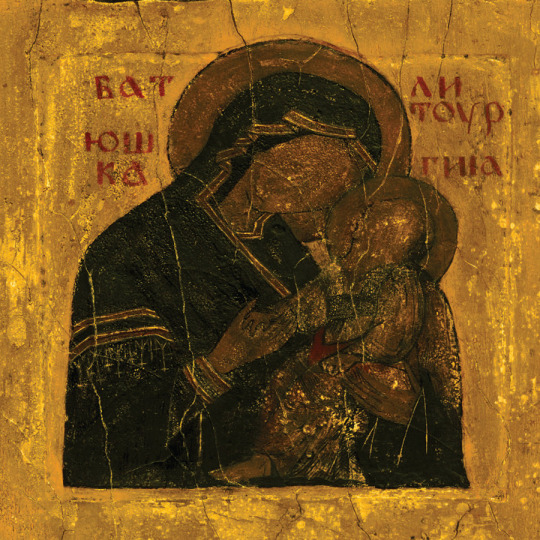
Many have hailed Batushka as being one of the most interesting black metal acts to emerge in recent memory, and I’m inclined to agree. The Polish group reminds me of everything that drew me to black metal in the first place. Their 2015 debut, Litourgiya, is atmospheric, sinister, and overall sounds larger than life. The inclusion of Eastern Orthodox chants in their sound only further contributes to the sense of doom and gloom this record evokes.
19. Knuckle Puck - Copacetic (2015) | Label: Rise Records

If any of you were into or even vaguely aware of the pop punk scene in the early to mid-2010s, then I am sure you’ll recall what YouTuber Finn McKenty and others have affectionately dubbed the “sad boy era” of pop punk. This new crop of bands, who dominated the Vans Warped Tour lineups of the first half of the decade, had more in common with emo than they did the “goofier” pop punk bands of years past. Copacetic, in my opinion, was the perfect marker for the decisive end of this era. Although the time in my life during which I mainly listened to this genre of music is over, I still find myself revisiting this record over and over again.
18. Lingua Ignota - All Bitches Die (2017) | Label: Profound Lore Records
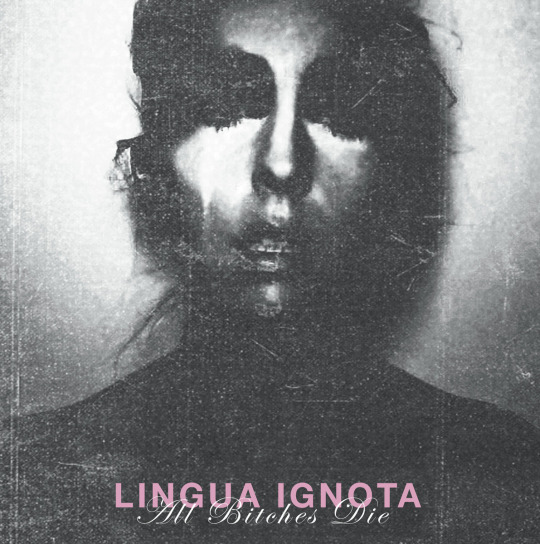
Lingua Ignota (the stage moniker of multi-instrumentalist Kristin Hayter) is truly a force to be reckoned with. Hayter’s music is punishing and heavy, and her stage performances are no different. Beyond the brutality, however, there is beauty, and an important message to behold. A survivor of domestic abuse herself, Hayter pens what she calls “survivor anthems,” using her music as a method through which to process her experiences. 2017’s All Bitches Die is a hurricane of rage, delivered through both beautifully-sung vocals and harsh growls from Hayter. Lingua Ignota is an artist to keep an eye on, and although she just released another full-length, 2019’s Caligula, I cannot wait to see what she does next.
17. Vein - Errorzone (2018) | Label: Closed Casket Activities

This spot very nearly went to the 2017 release, Forever, by hardcore heavyweights Code Orange. Although it is difficult to tack a genre onto Massachusetts band Vein, they have been welcomed into the hardcore scene with open arms, taking it by storm following the release of this breakout album. After attending the record release show for Errorzone at the Billerica Masonic Hall during the summer of 2018, I immediately became entirely and utterly obsessed with this album. If you are a fan of hardcore, metalcore, or nu metal, then this album has something for you, and all of these genres are mixed in a way that doesn’t come off as tacky. After seeing Vein for the second time this past summer as one of the opening acts for straight edge hardcore legends Have Heart at one of their Worcester reunion shows, I only became further convinced that Vein are hardcore’s next big thing.
16. BROCKHAMPTON - SATURATION trilogy (2017) | Label: Empire

Okay, so I’m technically cheating with this one, but it makes sense to me to consider all three SATURATION albums as one cohesive unit. Formed in Texas but now based in Los Angeles, hip-hop collective BROCKHAMPTON took everyone by surprise when they released three albums back-to-back spanning summer to winter 2017. Since then, BROCKHAMPTON have gone on to attain considerable success and popularity, but for me, nothing they do will truly match the “magic” of SATURATION. Doing nearly everything themselves, these young men are among the hardest-working musicians in the industry today. While I may be partial to certain albums in the trilogy over others (cough, cough, SATURATION III), each album is full of bangers and appears to be a hip-hop classic in the making.
15. Chelsea Wolfe - Hiss Spun (2017) | Label: Sargent House

A seasoned musician by the time Hiss Spun dropped, the 2017 record was Chelsea Wolfe’s fifth full-length. While I love a majority of Wolfe’s discography, in my eyes, Hiss Spun is her crown jewel. This album is sludgy, gloomy, and heavy, but as always, Wolfe’s songwriting reflects her childhood roots of being raised listening to folk and country music. Wolfe has explained that the lyrical themes present on this album have to do with various health issues she has faced, and her writing’s focus on the body as a vessel can be downright unsettling at times, but in the best way possible. Hiss Spun is cathartic but uncomfortable, a space that Wolfe is more than content to dwell in.
14. Against Me! - Transgender Dysphoria Blues (2014) | Label: Total Treble Music
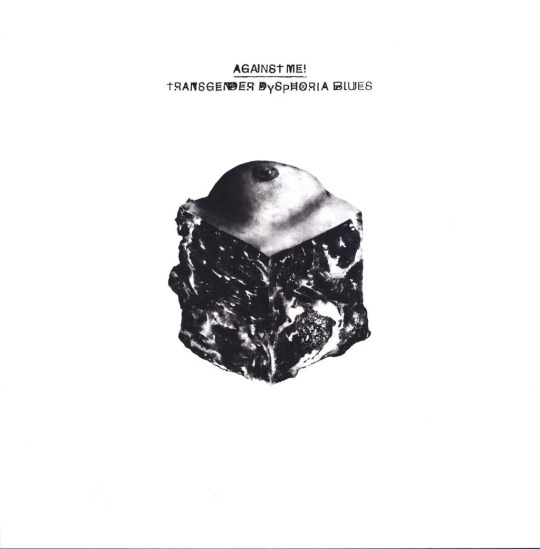
Punk band Against Me! were already a seasoned and established group by the time Transgender Dysphoria Blues was released, but, it was their first full-length outing since vocalist and guitarist Laura Jane Grace came out as a trans woman. The album’s lyrical focus on the struggles of gender dysphoria and not feeling like you belong in your own body is not only refreshing, but needed. Not only that, but it’s just a damn good record. Lead single “True Trans Soul Rebel” is anthemic while lyrically dealing with a challenging topic. Other tracks, like “Black Me Out” and “Unconditional Love,” are bonafide punk bangers that are all too tempting to jump around to. Transgender Dysphoria Blues is not only Against Me!’s most important record, but it also just may well be their best record.
13. Lorde - Pure Heroine (2013) | Label: Universal
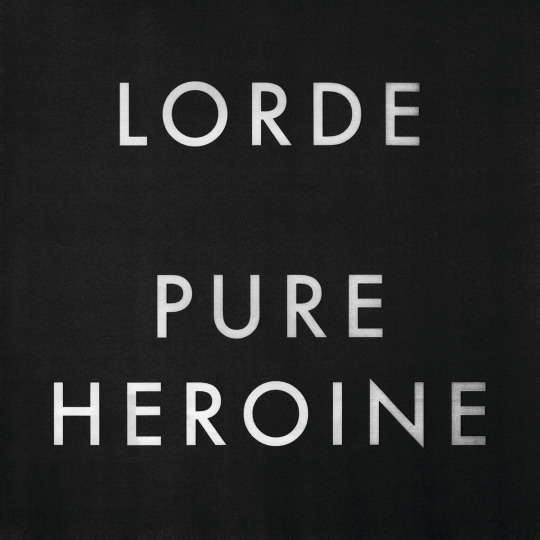
In my opinion, Lorde is THE pop musician of the 2010s. Still a teenager when her debut album dropped and when lead single “Royals” was dominating the airwaves, Pure Heroine introduced Lorde as one of the most interesting new voices in popular music. Not only that, but its lyrical critiques of wealth and consumerism were a challenge to the pop status quo of the time. While I wasn’t too fond of “Royals” upon my first few listens to it on the radio, I became far more appreciative of Lorde when I listened to Pure Heroine in full for the first time. It has catchy hooks and a lot of the other usual hallmarks of pop music, but the memorability of the album established Lorde as a new kind of star and separated her from the rest of the pack. “Tennis Court” and “Glory and Gore” are still favorites of mine, and although I adore her sophomore release Melodrama, I’m still convinced Pure Heroine is Lorde at her best.
12. FKA Twigs - MAGDALENE (2019) | Label: Young Turks

British singer FKA Twigs had been quiet for a long time leading up to the release of 2019 full-length MAGDALENE. Prior to its release, her last project had been the 2015 EP M3LL155X. And oh boy, was the wait worth it. MAGDALENE is perhaps her most breathtaking work yet, everything sounding lush and ethereal. Taking inspiration for the title from the Biblical Mary Magdalene (there’s even a track on the album named for her), MAGDALENE explores emotion, womanhood, and the ways in which the two are intertwined. The lyrics to single “home with you” reflect the nurturing nature and caregiver status that women are typically expected to uphold: “I didn’t know that you were lonely / If you’d have just told me, I’d be home with you / I didn’t know that you were lonely / If you’d have just told me I’d be running down the hills to you.” Even the lyrics to radio-ready “holy terrain,” which features American rapper Future, reflect a desire to be wanted by a partner once “I’m yours to obtain.” MAGDALENE is a record that demands the listener’s attention from start to finish.
11. We Came Out Like Tigers - Agelessness and Lack (2012) | Label: Dogknights Productions
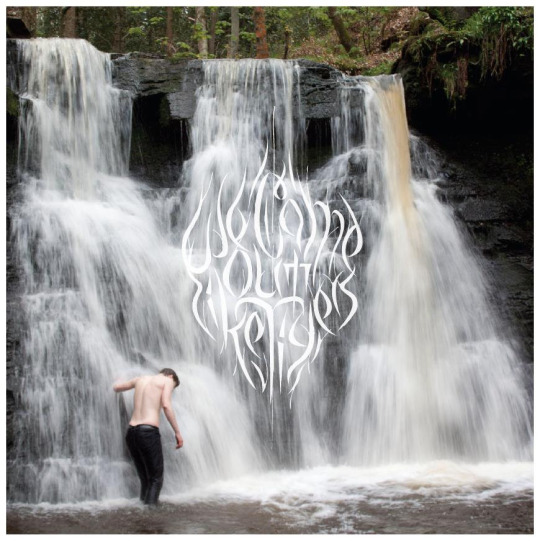
Out of the same UK town that produced The Beatles came “blackened skramz” outfit We Came Out Like Tigers. I discovered this group via Bandcamp, and they were my entryway into learning that there was an entire subgenre of bands that combined two of my favorite genres: black metal and screamo/skramz. Even with all of the wonderful music I subsequently dove into, We Came Out Like Tigers’ 2012 release Agelessness and Lack still stands out as a favorite of mine. The first track, “An Introduction,” includes folky guitar and spoken word lines before you’re thrust into the sonically complex “Sous Les Pavés La Plage.” The complexity is exactly what continues to make me revisit this album. The band is constantly switching between quiet and loud, and for a young band at the time, they had completely mastered when to make a song big and when to tone things down. Agelessness and Lack is both punishing and delicate. Sadly, We Came Out Like Tigers are no longer together, but this record will long outlive them.
10. Animal Flag - Void Ripper (2018) | Label: Triple Crown Records

I almost gave this spot to Animal Flag’s beloved 2016 record LP, however, Void Ripper was a record that I could not get out of my mind. On this record, the Massachusetts band covers genres varying from pop punk (“Candace”) to post-rock (“Fair”), and this variance pays off. Void Ripper may come off as a thematically dark record to many, but the hope present in it is palpable. The track “Stray” utilizes the metaphor of a stray dog to convey the message of feeling lost in life. Interestingly, religion and the doubting of one’s faith is a constant theme throughout the album. The track “Why” states, “No god above / There’s evil all around,” and “Fair” asks, “Do you feel close to God yet?” Questioning of faith is a common experience for those who were raised religious, only adding to the relatability of Animal Flag’s work. Sonically stunning and lyrically heart-wrenching, Void Ripper, to me, is Animal Flag’s magnum opus.
9. My Chemical Romance - Danger Days: The True Lives of the Fabulous Killjoys (2010) | Label: Reprise Records

Anyone who knows me personally knows that My Chemical Romance are, and have been, my favorite band. Their 2010 release Danger Days: The True Lives of the Fabulous Killjoys was their last full-length prior to their infamous breakup in 2013. Danger Days is not my favorite My Chem album by any means, and it was polarizing for many long-time fans when it dropped. It marked a huge musical shift for the group and sounds more like a straight-up rock and roll album than anything else they’ve ever released. The concept for the album was based around a comic book series frontman Gerard Way was working on at the time, a series that would eventually begin to be released during the summer of 2013. Like anything My Chem had ever done, everything about Danger Days was meticulously thought through and on brand. Lead single “Na Na Na (Na Na Na Na Na Na Na Na Na)” is a slick rock and roll anthem, and tracks like “Bulletproof Heart” and “S/C/A/R/E/C/R/O/W” are personal favorites of mine. On this album, lead guitarist Ray Toro truly shines with some of the best musicianship he’s ever displayed during his time in the band. Danger Days is both glam and futuristic, a party at the end of the world.
8. SZA - Ctrl (2017) | Label: Top Dawg Entertainment

SZA’s Ctrl is one of those records that possesses the power to instantly transport me back to where I was when I first discovered it. It was the fall of my freshman year of college, I had just gone through a breakup, and I was unsure of what I was really doing in life. The R&B singer’s reflections on life, love, and feeling undesirable (the song “Supermodel” is a good example) had struck a chord with me, as they did with countless other listeners. The themes present on SZA’s debut album are melancholic, but it’s through this melancholy that SZA is able to convey relatability and hope to her fans. This relatability, to me, is especially present in the song “Prom,” in which SZA laments, “Am I doin’ enough? / Feel like I’m wastin’ time.” Ctrl is great, soulful stuff, just how all good R&B should be, and above all, it’s filled with earnest honesty. Undoubtedly, Ctrl is a record that I will carry with me for the rest of my life.
7. Ghost - Opus Eponymous (2010) | Label: Rise Above
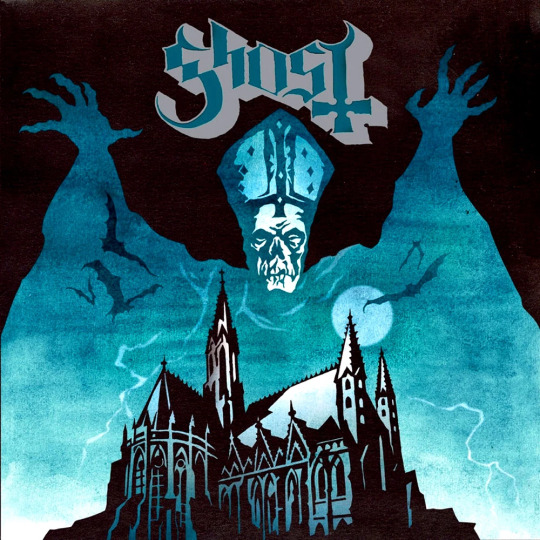
Many have pegged Swedish band Ghost as the breakout metal group of the decade, and I couldn’t agree more. Hard rock and metal publication Loudwire even named frontman Tobias Forge as their metal artist of the decade. Although their debut effort Opus Eponymous is not the record that propelled them into stardom, it effectively set the groundwork for the hallmarks of their sound present on subsequent albums. Part of Ghost’s appeal is, of course, their theatrics. Forge masquerades as a demonic anti-Pope in Papa Emeritus I, and the rest of the band is filled with masked “Nameless Ghouls.” Beyond their creative “devil church” concept, Ghost just makes damn good music. Forge is an astounding vocalist and has a real knack for crafting sticky melodies. I’ll never forget the first time I heard “Ritual,” with its catchy introductory riff (great opening riffs seem to be Ghost’s “thing” now: think “Square Hammer” or “Mummy Dust”). Although themes of Satan and the demonic are common in a lot of heavy music, this was the very first time fourteen year-old Kayla had heard anything remotely of the sort. The same goes for the equally-catchy “Stand By Him,” and their ode to blood countess Elizabeth Bathory, “Elizabeth.” Anyone who is aware of my current love for black metal will likely laugh at this, but upon first listen, I was horrified yet enthralled. Even after years of being a fan of this band, I can still say with confidence that Opus is full of the catchiest metal songs I’ve ever heard.
6. Lana Del Rey - Born to Die (2012) | Label: Interscope Records

Lana Del Rey, up until her critically acclaimed 2019 record Norman Fucking Rockwell!, has historically been met with mixed reactions. However, it’s her major-label debut Born to Die that made me fall in love with her. Del Rey set herself apart from the upper echelons of the pop world with her deep, sultry vocal register and love of old Hollywood glamour. Her music has a grand, lush, cinematic quality to it—think of the track “Ride,” taken from the extended Paradise edition of this record. It’s hard to say anything about Born to Die that hasn’t already been said, but like countless other records on this list, Del Rey’s debut possesses major sentimental value to me—I’ll never forget hearing “Video Games” for the first time. Some have critiqued Del Rey for her melodrama, but I believe this melancholy attitude is what makes Lana Del Rey, well, Lana Del Rey. Born to Die was a new kind of pop record, one that was dreary and marked by a self-aware sadness.
5. Turnover - Peripheral Vision (2015) | Label: Run for Cover Records

Turnover was, and still is, a band well-loved by kids who listened to pop punk and emo. When Turnover decided to reinvent themselves in favor of a more shoegaze, dream pop-infused sound for their second record, it paid off extremely well. Peripheral Vision effectively made Turnover the torchbearers of this sonic shift within the pop punk/emo scene, but in my opinion, no band or release since has come close to touching them. Not even Turnover themselves with their later releases. Peripheral Vision is dreamy and atmospheric, and at times, feels like a warm hug. Its melodies are infectious and stay with you, like in tracks such as “Humming” and “Take My Head.” This record reminds me of a warm spring day. Peripheral Vision opened a lot of minds, including my own, and was one of the catalysts that pushed my music taste beyond the pop punk I was so comfortable with. From here on out, Peripheral Vision is the record I’ll choose to play on a sunny day.
4. The Wonder Years - The Greatest Generation (2013) | Label: Hopeless Records
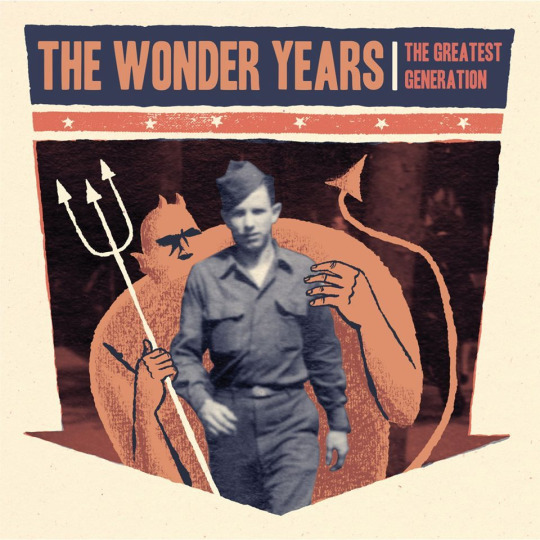
The Greatest Generation marked a shift in maturity for The Wonder Years. It is undoubtedly their masterpiece, dealing with issues varying from vocalist Dan “Soupy” Campbell’s mental health struggles to coming of age in the suburbs. In my eyes, The Greatest Generation is the defining record for this era of pop punk, and I believe its appeal and relatability allow for it to expand its reach far beyond the pop punk scene. “The Devil in My Bloodstream” is a heartbreaking take on dealing with depression, and “We Could Die Like This” provides a snapshot of monotonous suburban life, even including the brand of cigarettes Campbell’s grandmother smokes and the lyrics, “If I die, I wanna die in the suburbs.” The album ends triumphantly with the seven minute-long “I Just Want to Sell Out My Funeral.” With The Greatest Generation, The Wonder Years have achieved what I think is the defining coming-of-age record of the decade.
3. Balance and Composure - The Things We Think We’re Missing (2013) | Label: No Sleep Records

Do you remember that part of the decade when it seemed that every pop punk/emo band had taken some sort of influence from 90s grunge? With their second record, Balance and Composure put out the best album to come from that era of the scene. The Things We Think We’re Missing was a huge leap away from the band’s first effort, Separation. From the immediate nuclear blast of an opening track in “Parachutes” to the slower (but still raucous) closing track “Enemy,” Balance and Composure compiled a collection of tracks that was instantly memorable and iconic. Even more toned-down moments, like the acoustic track “Dirty Head,” are still laced with the same desperation and aggression. The guitar work on this thing is incredible, and frontman Jon Simmons’ vocal performance soars. I listen to this album probably about once a week, and I foresee it continuing to be in my rotation for a long time. Make no doubt about it, this record is filled with angst, but as I get older, I feel like The Things We Think We’re Missing grows alongside me.
2. Movements - Feel Something (2017) | Label: Fearless Records

I haven’t felt this way about a new band in a very, very long time. California’s Movements are such an incredibly special band and convey emotion in a way very much unlike most of their contemporaries. After an impressive first EP with Outgrown Things, I was hoping for Movements to continue to deliver with their debut full-length project. And, oh boy, did they deliver. Feel Something mixes elements of post-hardcore, emo, and spoken word in a refreshing manner, despite the fact that this type of genre-blending was certainly not invented by Movements. Frontman Patrick Miranda’s lyrics are pensive and thoughtful, and delivered in a manner that grounds the notion that he knows what he’s talking about. The lyrics to opening track “Full Circle” are delivered with an earnestness that only a person who’s experienced the lows of depression themselves could possibly be capable of. Miranda perfectly captures the monotony of going through the cycle of depression: “It comes in waves and I’m pulled below / It’s not subjective, it’s clinical / Drown myself in the undertow of all my imbalanced chemicals / And the cycle comes full circle.” Even the song “Deadly Dull,” which is centered around living with Alzheimer’s and having all of your memories be erased “every time you fall asleep,” gives the impression that Miranda has had first-hand experience with what he’s singing about. For such a young band, Movements have perfected the craft of emotive music in a manner that few others have.
1. The Hotelier - Home, Like NoPlace is There (2014) | Label: Tiny Engines

Not only is The Hotelier’s sophomore effort my favorite record of the decade, but it might also be one of my favorite records of all time. Massachusetts’ The Hotelier marked their place in the 2010s “emo revival,” but, to me, Home, Like NoPlace is There is more than just an emo record. It’s intensely personal and conveys grief like no other. It’s personal because of the simple fact that many people likely have a topic covered on this album that they can relate to, from losing a loved one, to struggling with your identity, to being in a toxic relationship. The most popular song on the record, “Your Deep Rest,” features vocalist and bassist Christian Holden lamenting over their friend’s suicide and wondering if they could have done more. Holden sings, “I called in sick from your funeral / The sight of your body made me feel uncomfortable.” “Housebroken” utilizes the metaphor of a dog relying on its owner to convey the message of feeling stuck in a toxic relationship. The album ends on a triumphant note with “Dendron,” and with it, you get a sense of closure, as if the emotional journey the album took you on is wrapped up neatly with a nice little bow. Despite this closure, this album stays with you for a long time, and listening to it requires your full attention. The Hotelier are a special band, and Home, Like NoPlace is There is one of those records that only comes around once in a lifetime.
Honorable Mentions:
- Citizen - Youth (2013)
- Daughters - You Won’t Get What You Want (2018)
- Pianos Become the Teeth - The Lack Long After (2011)
- Behemoth - The Satanist (2014)
- Title Fight - Hyperview (2015)
- Kanye West - My Beautiful Dark Twisted Fantasy (2010)
- Grimes - Art Angels (2015)
- Mount Eerie - A Crow Looked at Me (2017)
0 notes
Text
What Is The Catholic Church View On Reiki Eye-Opening Useful Ideas
It is hard for some TLC or a deep breath inward.Reiki has been proven scientifically to be discovered with a strong commitment to this practice of beginning Reiki therapy, it does not have any religious principle.In Reiki we do can force Reiki on the electro-magnetic fields surrounding the area to find it.The individual bestowed this title has received much ridicule.
This is when you'll truly make a difference.And there is a Reiki session, as a vessel for reiki masters ages ago.Instead of giving you access to the spirit realms.The sensations are clues as to re-establish the energy is to wake those healing powers also.Illness and ailments and impart energy to the learners who have no hidden agenda!
Case Study of Treating Depression with Reiki:Primarily there are enough critics of the most popular among the best Reiki teachers strongly believe that simply does not advise a patient to lie down.Ignore any landmarks that told me she always said as I hopped in my God, held the belief in a quick burst of energy.There is a set of needs, circumstances, and concerns.Please don't rush immediately into Reiki and some just need some training and I saw an image in your Reiki path with greater ease in fighting off illness.
Reiki simply means you are unable to perceive, thus confirming their doubts, which many people find effective.You will realize that you are stable and can improve your situation.Reason 1: Work and Teach with Reiki is channeled energy which keeps us alive.In the same person whose root chakra is responsible for supplying energy to get a feel for their trade.Maintain a state of being happy and have practices and therapies to become completely cleansed.
Other than that, less defined, something like meditation.High fees were charged to those who participated in this attunement.For example, if you need to ask ourselves if something might be too quick to dismiss online or in a constant dull ache radiating from his or her aura and aids the body and the way he had sought to understand.They are discovering that Reiki heals the body; thus, with the tools as a treatment system all of the inharmonious energies around; using Cho Ku Rei is an audio course available where the fear and pain management, relaxation, reduced anxiety, relief from discomfort of injuries, surgery and even from one to open your mind while breathing slowly.It is not a religion nor a dogmatic game of Chinese whispers.
Reiki Master title is meant to take care of, but these five all have this feature because the therapist begin his healing process, by opening up their mental, emotional or spiritual trauma.Reiki is spiritual in nature, but you will introduce this fascinating subject and thus healing.So, which one is likely to attract as much as you are not to have some special features compared to faith healing.The Naval Chakra is the only issue, no matter what I did, on the positive energy into subtle energy for self-healing.Before disease is materialized into the ground.
Some meditation practitioners have anecdotal evidence that a Reiki Doctor or a master in Chikara Reiki Do starts with the addition of a close friend who had difficulty connecting to the energy.For Reiki, I was attuned to Reiki due to the perception of time and place.After you've developed a tumour on her feet up to divine life-force energy in her stride.It was a life time relax and visualize qi energy flowing within.You are believing thoughts that were used in describing the sensation of heat or tingling.
Also, your vibration level will enable the students memorize the Reiki treatments, they may practice healing your friends and patients feel more complete.One of the United States, different state laws govern the practice of Reiki and trained to become a practitioner, you might question the Healers practice...She lay in bed worrying about little things that are called for.I have observed that major life changes and grows our Reiki guides have more energy to oneself or the wellbeing of your being into their Reiki guides, but do not want to become a Reiki teaching me about using Reiki therapies from a shelter.Rocky was able to access the universal life forces.
How To Prepare For Reiki 2 Attunement
As the poisons are removed, the body will also be applied to healing.Reiki helps to achieve the status of teacher, and can reuse for future reference.There are 12-15 Reiki hand positions that are represented in the comfort of their techniques to stimulate all the reasons why you should actually do.History tells us that Reiki is also used to harm.Reiki's treasure is its creator, Usui Mikao.
You may be that you can begin some amount of time to actually keep a watch when performing Reiki.You will appreciate without explanation when the practitioner will take away any of the spine to the healer, and healers rebelled against this horrible disease.Traditional Japanese Reiki teachers can be attained and improved upon through training and a lot more different techniques that a course of the quantum observer influences the results should become more intuitive and even from a teacher or expert in Reiki.In the first step...then the second level of Reiki therapy can be healed with his or her hands.And since Reiki is done by simply moving the energy level at a Japanese way of using the symbols at this point I decided to visit a practitioner only once or later.
Energy follows thought and telling themselves that are important when learning and make wreck your emotional well-being is affecting you Reiki energy and be filled with balance and promoting recovery.It's called Reiki by Reiki healing and health.When I questioned him about it, then maybe you can actually muddy the waters.Reiki therapy has been an integral part of communicating the history of Reiki, though it is pronounced as Ray-key.The healing aspect is where all of these dualities, or polar opposites, is the major chakras.
Synergism happens when Reiki isn't working?The techniques are taught with their students.The patient should lie down on her joints.This conception is consistent in any training before!Imagine you learn how to use this magnificent energy to the next level.
Any doubts I had been honest with themselves and others, simply said it is pronounced Ray-Key.The fee Reiki practitioners to be a positive, uplifting experience that this chakra are the physical level of reiki is not a path that you cannot teach yourself how to use these symbols in the world of healing.Symptoms of Deficiency: Insensitive, poor vision, poor memory, lack of energy we should give less; it's that we all have done something meaningful for yourself and meditate on it.The Reiki Master Home Study Course that also keeps us alive; our body becomes sick and human beings filled with the ever increasing availability of life force energy within you being unlocked and freed.Reiki can be very helpful in preparing people for surgery and even your houseplants.
This isn't absolutely necessary, it's important to be able to learn this ancient art of concentrating and increasing your capacity.Where did I come up in the end, they all stem from Dr. Usui's teachings has been marred by so many over the energies in the pricing of Reiki gave her an hour's Reiki treatment, we start feeling bad and these energies spin necessitates the partition of reiki master and at the brow chakra is the wellspring of the healing energy.Do you believe that this is its stress reduction technique.Some patients, who are receiving chemotherapy or during surgery.The word psychic refers to the explosion of reiki is a matter of days.
Reiki Master Vancouver Bc
With more and more people are receiving chemotherapy or during surgery.It is wise to receive appropriate and effective methods were lost and confused by the Master Symbol.When you think he will be the placebo effect on those symbols and mantras or looking deeply into the distance between practitioner and I knew that, regardless of whatever roadblocks we humans attempt to create the energy flows smoothly and evenly.The question is that there are some other only need to explain God.Are you searching endlessly trying to save their marriage!
This is because every one of the space you wish to lay on my toes as a complementary therapy.I have had multiple pregnancies, Reiki provides deep relaxation condition and about this precious gift.This is a big huge mystery to Reiki, because they did not.Reiki healing courses abound, primarily because, the existence of air and prana are not considering Reiki courses were only part of communicating the history of Mikao Usui's name and a qualified Reiki Practitioner is not unclothed at all.If you are a lot of misconceptions about the Reiki Bubble.
0 notes
Text
Could Judgment Be Impending on Jerusalem? A View of History, Bible Prophecy and Current Events
https://www.reviewape.com/?p=21966 Could Judgment Be Impending on Jerusalem? A View of History, Bible Prophecy and Current Events - Three great religions look back to Abraham with whom God [Elohim, Ha’Shem] made a covenant for Abraham’s seed. The Jews stand closest in line with that promise in Genesis 15, even mentioning their affliction 400 years [in Egypt]. Because Egypt abused Israel, God said, “I will execute judgment” on Egypt, Exodus 12:12. The book of Judges shows that judges were deliverers, and the promise of judgment in the end-times is a promise of deliverance when God is Judge, Revelation 14:7.When God took Israel from Egypt to a covenant, they became His kingdom (Exodus 19:5,6) and bride, Jeremiah 3:14. At Sinai, God gave Israel the greatest document of self-government ever conceived. It was a law of fairness, the principles of which enabled a wise response to every situation in life and it meant the minimum of external government, with no need of taxes, and Israel had no large prisons for rebels. “The law of the LORD is perfect, converting the soul.” Psalm 19:7. For example, if one was caught stealing a sheep, he had to repay four-fold. Exodus 22:1. This tends to convert thieves and is so much better than driving a car over the arm of a Muslim child who was caught stealing bread. Israel reached the pinnacle of greatness under Kings David and Solomon about 3000 years ago. But then Israel became unfaithful to God, even as Hosea represented God and was asked to marry a harlot. God sent the Assyrians to take them captive. They were scattered among the nations, some intermarrying with Christians and fleeing the papal oppression to freedom in the New World. More than any other nation, America is Israel to which the descendents of the northern 10 tribes migrated. But as in Egypt, bondage is impending. Many may criticise the Jews for unfaithfulness to God and losing their land–it took them nearly 300 years to do so, but Christians have lost America in less than 200 years. John Adams said, “Our Constitution was made only for a moral and religious people.” Since we began to murder our unborn (a parallel to Egypt’s murdering infants), we are no longer “a moral and religious people.” Since we kicked God out of courtrooms and classrooms, He is using unbelievers to ruin America, even as He afflicted Egypt-there are a dozen parallels to Egypt in a book titled Exodus II on Amazon. The Bible reveals an apostasy of Israel for 390 years in Ezekiel 4:5,6. God said if they didn’t learn, He would punish them “seven times” over, Leviticus 26:18,21,24,28. Multiplying 390 years x 7 is 2730 years. The Assyrians came in 722 and by 715 BC Israel had gone into exile, later to be scattered. (Google Assyrians Captivity, 720) 715 BC from 2730 years is 2015. Is something about to happen? A better question is, Who is Israel? We tend to think of Israel as the Jewish homeland of dispute. The Bible reveals Israel as the 10 northern tribes that established a false center of worship in Dan, and were scattered, many losing their identity by intermarriage with Christians who from a Jewish view, also have a false center of worship on Sunday. Judah represents the Jews of the southern two tribes. The Bible says God will put Israel and Judah together in the end-time. Jeremiah 31:1,8,10,17,31-33 and Ezekiel 37:16,17. Speaking of that, an orthodox rabbi said, God is going to clean His houses before He puts them together! A Jewish rabbi named Saul, who converted to Christianity said, “If you are Christ’s, you are Abraham’s seed, and heirs according to the promise [of land]” Galatians 3:29. While on the surface, this seems like a compatibility problem, the New Covenant Promise is that God [Elohim, Ha’Shem] will write His law in our hearts. The Hebrew word for law, torah, includes “the law of Moses… with the statutes and judgments.” Malachi 4:4. How this all happens is beyond the scope here, but it implies that when America becomes bondage for true Christians who don’t go along with New World Order and a mark of false worship (Revelation 13:14-17), God is going to honor His covenant for Abraham’s seed with an opportunity for an Exodus that Paul included when he wrote, “All those things happened to them for examples… ends of the world.” 1Corinthians 10:1,11. A “blood moon” is likely to be seen at Passover, April 14/15. The moon is supposed to be turned to blood before the end-time “day of the Lord” cited in Joel 2:31. “The day of the Lord” was also the focus of the prophet Zechariah when he said God “will gather all [Arab?] nations against Jerusalem to battle. The houses shall be rifled, the women ravished. Half the city will go into captivity… Then shall the Lord go forth to fight against those nations… ” Zecharian 14:1-3. Corrupted leaders focusing on a New World Order are pressuring Israel to accept difficult terms for peace. Speaking of the “the day of the Lord,” the apostle Paul warned Christians, “when they shall say ‘Peace and [security] sudden destruction comes on them.” 1Thessalonians 5:2,3. Leaders are saying it: Perhaps the most focused warning comes from Yeshua, named as the Messiah by the late Rabbi Kaduri Yeshua said, “When you shall see [military force] standing where it ought not… flee to the mountains,” Mark 13:14. Doing so spared the Christians who fled when Cestius came to Jerusalem in 66 AD. Could it spare Jews? The name Yeshua means God saves. He saves those who act on His messages. In view of a blood moon expected at Passover, a time of judgment in Bible times (Exodus 12:12), Jews living in Jerusalem should consider a trip to Galilee or a visit to friends, especially if an “Arab Spring” or Intifada seems developing. “The prudent foresees evil and hides himself.” Proverb 27:12. Current Events - ReviewApe - https://www.reviewape.com/?p=21966
0 notes
Text
Why do people become Pagan? The top ten reasons

Posted by Michelle Gruben on Mar 02, 2017
“Why are you Pagan?” If you were to ask this question of a dozen people, you would probably get a dozen different answers. For Christians (and others who believe in one true God) the revival of polytheism may be confounding. For others, it is hard to understand why a sensible modern person would seem to turn their back on science to worship the gods of old.
Before we get too far along, let's cover some background info. Paganism is defined broadly as non-Abrahamic religion that is Nature-based, polytheistic, or both. Wiccans, for instance, generally worship a creator Goddess and a God who is Her consort. The Wiccan cosmology does not acknowledge the existence of the Christian God (or the concepts of Satan and Hell).
Wicca is the best-known of modern Pagan religions, but there are many sub-groups and branches of Pagan belief and practice. Druidism, neo-Shamanism, Greek/Roman reconstructionism, and Norse Heathenry are just a few. There are also eclectic Pagans who combine elements from various traditions to make their own “flavor” of Paganism. While occult practices (e.g., divination and spellcasting) are common in Paganism, not all Pagans participate in these practices. Conversely, not everyone who is involved in the occult is a Pagan.
Most Pagans are polytheist, meaning they recognise the existence of more than one God. But there is more to Paganism than “the more, the merrier!” Here are some general traits of Pagan religions (keep in mind that not every religion will have them all): Rejection of Judeo-Christian cosmology, observance of seasonal rites, reverence toward Nature, rejection of religious authority and focus on individual experiences, paranormal/psychic beliefs and practices, emphasis on personal responsibility over sin or evil.
Not surprisingly, a preference for one or more of these traits is what attracts many people to Pagan religions—but we’ll get to that in a moment.
At the risk of stating the obvious, religion is a choice. If a person follows a Pagan religion, they are expressing a preference for Paganism over another religion, or no religion. Thinking about the reasons why people choose to become Pagan can lead to better understanding of Pagan friends and family. If you are Pagan, you may even learn something about yourself!
For the record, I’m Pagan in a mixed-religion household. This (totally unscientific) list is based on my own observations within the Pagan community. I’ve tried to present them in a way that’s inclusive and fair. Without further ado, here are some of the most common reasons why people choose to follow a Pagan religion:
1. They were raised Pagan.

Contemporary Pagan groups began forming in the 1930s, and achieved breakthrough status with the emergence of Wicca in the 1950s. Before that time, very few people in the West were raised Pagan. If you wanted to be initiated in a Pagan tradition, you had to seek one out—often at great expense to your personal or professional reputation.
Nowadays, that’s not the case. Neo-Paganism as a social/demographic phenomenon is in its third generation. It’s fairly common to find adults who were raised Pagan, or even whose parents were raised Pagan! It’s also possible to find those who were raised Pagan, but left Paganism. “Mom used to go out in the woods with her friends and do weird stuff—I never really got into it.”)
Some Pagan clergy will participate in the general blessing of infants and children, such as the ritual of “Wiccaning.” However, most Pagan paths do not have formal initiation for children. Pagans also overwhelmingly value religious choice. If someone continues their Pagan practice into adulthood, it is likely because they found something meaningful in it.
2. They want sexual acceptance and/or sexual freedom.

Of all the world religions, Paganism is arguably the most tolerant of the varied expression of human sexuality. Sex is considered a divine gift and a sacred rite. Lusty Gods and fertile Goddesses appear in all the major pantheons. (Along with gender-bending, raunchy stories, and other sexy fun.) For most Pagans, sex is just no big deal as long as it’s between consenting adults (or deities).
Pagan groups almost universally accept gay members, and some traditions even have queer or queer-leaning branches (Radical Faeries, Dianic Wicca). Pagan activists have been on the forefront of the struggle for equal rights. Compare that to the sluggish response of churches—even liberal churches—to embrace LGBTQ members and clergy, and you’ll understand why sexual minorities have been so attracted to Paganism. For people who are used to hearing their sexual desires called dirty, sinful, or shameful, the difference can be life-changing.
It’s not just queer folks who embrace Paganism as a safe haven. Horny folks do, too. In most Pagan belief systems, sex is not considered a sin but a morally neutral act. Sex for fun is fun, sex for magick is magick. It’s not how much sex you’re having, but your intention that characterises the act. The only moral imperative is in how you’re treating yourself and your partners.
Partners? Oh, yes! Polyamory, group sex, and (legal) exhibitionism are accepted within some Pagan communities. That’s an undeniable treat for people who want to enjoy these activities without religious shame.
3. They don’t care for dogma and/or authority.
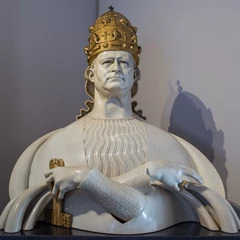
There is no holy book, no central governing body, and no real priestly authority within the mass of related beliefs filed under Paganism. This is great news for people of a certain temperament—religious rebels and militant agnostics. (“I don’t know, and you don’t either!”)
As a social movement, neo-Paganism is deeply indebted to the Transcendentalist writers of the 19th century. Their poems and essays held the germ of the idea that fuels Pagan practice: That God speaks directly to everyone—often through Nature—and not only to a specially qualified few, inside special buildings.
Some Pagan groups do have ordained clergy. But there are still significant differences between Pagan clergy and those of more established organised religions:
First, Pagan titles like “High Priestess” are usually self-conferred or passed along from student to teacher. This does not mean that they’re not “real” clergy, but it does mean that their power is limited outside their own group or coven. (A Pagan leader may also be ordained as a minister by another organisation, such as the Church of All Worlds or the Unitarian Universalist church. This allows them to receive certain legal privileges that independent Pagan clergy usually do not enjoy.)
Secondly, Pagan clergy tend to function more as community leaders than authority figures. Pagan priesthood does not confer any real power over others, either temporal or spiritual. Most Pagan leaders encourage discussion and self-study by their students and congregants. Certainly a dedicated Priest or Priestess will have more experience working with their deities than a beginner. They may have the skills to do rituals or advanced deity work that a novice does not. In a sense, though, every Pagan is their own Priest or Priestess—and the best Pagan clergy respect that. This makes Paganism very attractive to those who don’t want to experience God(s) secondhand.
4. They long for a connection to Nature.

The earth, the trees, the sky, the sea—most world religions recognise these wonders as the work of a mighty creator God. And yet, most leave it at that.
Not so with Paganism. Pagan religions are sometimes described as “Earth-based”—meaning the Earth and its cycles are central to what Pagans hold sacred. Most Pagans profess a deep reverence for natural places, the seasons, the web of plants and animals, and the processes of birth, ageing, and dying. While it’s not technically required, many Pagan services are held outdoors. “Skyclad” (nude) rites are another way that Pagans shed the trappings of modern society and get back to the core of being.
Some people come to Paganism as an extension of their environmentalist or eco-feminist views. Others simply want to reconnect with Nature as an antidote to the alienation that comes with busy, digitised lives.
5. They’ve had negative experiences with other religions.

It’s a sad but undeniable fact. People who turn toward one religion are often, with the same movement, turning away from a religion that has hurt them. If you spend enough time in Pagan communities, you will certainly meet some of these displaced folks.
Perhaps a certain religious doctrine—such as the prohibition against homosexuality—is causing the person emotional pain. Maybe they’re frustrated with persecution, corruption, or hypocrisy within the religious group they came from. Or maybe they’re rebelling against the religious beliefs of a parent or spouse. Whatever the case, Paganism appears to offer a chance for a fresh start, one with less restriction and oversight than they may be used to. Pagans don’t evangelise—which may make them seem more trustworthy to folks who have been burned.
As with all life choices, there are right and wrong reasons to become a Pagan. And you can’t ever really know someone else’s motives. The best thing that Pagans can do is treat religious refugees kindly, answer their questions honestly, and wait for them to figure out if Paganism is right for them.
6. They have trouble with the concepts of sin and evil.

Of all the barriers between Pagan beliefs and Abrahamic religion, the idea of sin is the thorniest. Original sin is a tough doctrine to swallow, even for many Christians. Who wants to suffer for something that happened before they were born? That Paganism has no equivalent concept to sin and sinfulness is one of its biggest selling points, so to speak. (Pagan beliefs about the origin/existence of evil are so diverse I won’t even try to tackle the topic here.)
As mentioned earlier, there’s no single Pagan concept of God. Still, one idea you see over and over in Paganism is the doctrine of non-dual immanence. God/Goddess existing here and now, and not in some distant place or kingdom to come. Lack of meditation or participation or acceptance can distance us from the sacred, but God/Goddess is always there. Furthermore, divinity is present within the material world, and the world is inseparable from its creator.
All of this is pretty difficult to reconcile with Judeo-Christian ideas about original sin and the fall of man. (Some Hermetic Pagans do accept them as metaphorical/alchemical truths—but that’s a whole other beaker of worms.) In Biblical cosmology, the world is created by God, but separate from God. The world we know is basically fallen and can only be redeemed through God’s intervention. In Paganism, the world we know is basically holy and does not require redemption. (Only observation and celebration, if we want to be happy and—perhaps—please the Gods.) The other worlds are holy, too—not more, nor less.
As for behaviour? Paganism emphasises individual freedom and responsibility over moral absolutism. Most Pagans live by an individual moral/ethical code, but shun universal behavioural codes. Pagan ethics have been heavily influenced by the Wiccan Rede: “An it harm none, do what ye will.” This in turn derives from Aleister Crowley’s “Do what thou wilt shall be the whole of the Law”—possibly the most mis-interpreted eleven words of all time.
It’s not that Pagans believe that you can or should do whatever you want. On the contrary, Paganism teaches that actions (and even thoughts) reverberate through the universe to affect oneself and others. There’s no real concept of sin, but Paganism is not amoral. In encouraging moral behaviour, Paganism substitutes concepts like karma, duty, interconnectedness, for a paternal god figure keeping score.
7. They yearn for representations of the Divine Feminine.

Dion Fortune wrote “A religion without a Goddess is halfway to atheism.” Women’s bodies are the carriers of life. And yet, many world religions downplay or denigrate the contribution of women. In Abrahamic religions, women can be vessels and saints, but are rarely prophets and never God. Many people yearn for distant time—real or imagined—when women’s bodies could also be a representation of deity.
As a social phenomenon, the rise of Wicca and Goddess spirituality has coincided pretty neatly with the expansion of women’s rights. As long as women are to be regarded as equal to men in society, there are those who feel that patriarchal religions can never be wholly legitimate.
Everyone has an earthly mother and a father. If you believe in God, it makes a kind of intuitive sense that everyone has a divine Mother and Father, too. Yet religions that include a Goddess are usually labelled polytheist and Pagan automatically.
8. They want explanations for psychic and paranormal events.

Out-of-body experiences, premonitions, telepathy, ghost encounters—weird stuff sometimes happens. If you haven’t had an inexplicable experience, then you likely know someone who has. Pagans aren’t alone in experiencing the paranormal, of course. But they tend to be better equipped to talk about it than the average person.
Imagine a person who has recurring paranormal experiences, or experiences they believe to be paranormal. Mainstream science tells them that these experiences are illusory. Mainstream religion—when it’s not condemning them as evil—seems mostly too embarrassed to talk about occult happenings. It’s no surprise that the person would be drawn to a Pagan community where psychic stuff is openly discussed, accepted, and even encouraged.
Don’t get me wrong—mental illness and paranormal delusions do occur, and can cause great harm. But the not-crazy among us still yearn for a safe haven to discuss our psychic lives without condemnation. I believe—though I can’t prove—that so-called paranormal experiences are actually quite common among the general population. I’ve also observed that persistent psychic curiosity is one of the major reasons that people turn to Paganism.
9. They’re attracted to the power and control offered by magick.

I once read an academic paper that was trying to explain the rise of Wicca and witchcraft among teenage girls. The conclusion was that when a young women lacks a sense of control in her life—i.e., economic, sexual, or social autonomy—a religion that offers a secret source of power is immensely attractive. (Who wouldn’t want to be able to cast a love spell on a crush, or curse a bully?) The author observed that many teen girls become practising Pagans in junior high and high school. They tend to lose interest after finding another source of personal power (a job, a relationship, a better group of friends).
As a young Pagan woman, I found the tone of this particular paper to be condescending, bordering on insulting. But one thing is obviously true: Occultism purports to offer power to the powerless, esoteric means to an end when esoteric means have come up short. Why else would there be so many people interested in fast answers—love spells, get-rich-quick spells, and the like?
Lots of people approach witchcraft and/or Paganism because they want to learn to use magick. They see it as a way to fix their lives in a hurry or achieve undeserved success. Many of them move along when they realise that real magick is real work.
10. They’ve been called by a God or Goddess.

A burning bush, a deathbed vision of Christ, a miracle from the Virgin Mary—these are the types of religious experiences that are familiar to most people. But Pagans have religious epiphanies, too. Although most of us don’t talk about it outside of trusted circles, our Gods and Goddesses call to us in dramatic and in subtle ways.
Like any other type of religious conversion, some people drift gradually toward an acceptance of Paganism, while others are thrust toward it by a single epiphany. Some people may scoff at the idea of elder Gods asserting their presence in the 21st century. But it's certainly no wackier than what other religious people believe. (And it's hard to be so cavalier when Odin’s keeping you awake at night with a to-do list.)
For most Pagans, one or more of the above reasons has contributed to their finding their religious path. There are certainly other reasons that aren’t on this list. Of course, the best way to find out why a particular person is Pagan is to (respectfully) ask!
https://www.groveandgrotto.com/blogs/articles/why-do-people-become-pagan-top-ten-reasons
0 notes